Members of the Order of British Columbia: F–H
C–E < Previous
Next > I–L
Browse honourees by last name, letters F through H. Search for a name using 'Ctrl+F' to jump to a specific recipient. Bios reflect achievements at time of appointment.
An asterisk (*) indicates that the recipient is deceased.
F
Dr. Gregory Fahlman
Few of us accomplish enough to have a minor planet named after us. Dr. Gregory Fahlman is one of those few. One of the most important figures in world astronomy, Dr. Fahlman has fostered excellence in all he has done, including leadership of Canada’s national laboratory for astronomy, now known as National Research Council Herzberg, Astronomy and Astrophysics Programs.
He has made significant achievements in scientific research, producing more than 140 refereed papers that have been cited more than 5,000 times by researchers worldwide. He has devoted nearly a decade to leading NRC-Herzberg Institute of Astrophysics, with responsibility for six observatories, including two in British Columbia. During his time as Director General, the institute amassed an impressive array of accomplishments in astronomy.
A leader in collaboration, Dr. Fahlman has played a major role in Canada’s participation in international projects such as the Canada-France Hawaii Telescope, the Gemini Observatory, the Atacama Large Millimetre Array and others. Strongly representing the interests of Canadian researchers, he has played a major part in making Canada a world leader in astrophysical research.
Dr. Fahlman has worked cooperatively with other countries and with leading companies such as B.C. high technology firms Profile Composites Inc., Dynamic Structures Limited and Altair Engineering Canada, among others. Contracts directly related to observatories in which the Canadian government has an interest have brought our province more than $56 million over the past two decades.
Throughout his long career, almost all of it in British Columbia, Dr. Fahlman has distinguished himself as a scientist and a visionary scientific leader.
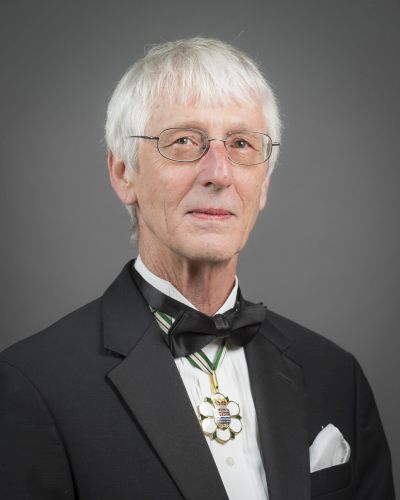
- Year: 2013
- City: Victoria
- Region: Vancouver Island/Coast
- Category: Science and Technology
Gathie Falk
Artist Gathie Falk’s career as a visual and performing artist and sculptor has spanned 37 years. Falk has completed commissions for the Lester Pearson Building (Ottawa), Canadian Embassy (Washington, D.C.) and Canada Place (Vancouver). Her works are in permanent collections in the National Gallery of Canada, the Art Gallery of Ontario, the Winnipeg Art Gallery, the MacKenzie Art Gallery in Regina and the Vancouver Art Gallery. A major retrospective titled Gathie Falk, organized and circulated by the Vancouver Art Gallery in partnership with the National Gallery of Canada, is currently touring Canada. In 1997, Falk was named a member of the Order of Canada.

- Year: 2002
- City: Vancouver
- Region: Mainland/Southwest
- Category: Arts and Culture
Lynda and Murray Farmer
Murray and Lynda Farmer have enhanced British Columbia as a place to study, live, work and visit. With grace and generosity, they have set an example for community involvement as volunteers, philanthropists and leaders.
Camosun College and the University of Victoria, in particular, have grown in capacity and status as a result of the Farmer’s leadership and service.
Murray served on the UVic board of governors including a period as chair followed by two terms as university chancellor. Lynda served on the Camosun College Foundation and the college’s board of governors including as its chair.
The two established the Lynda and Murray Farmer Walk of Excellence to honour former UVic athletes and coaches. As co-chairs of the Camosun College Foundation Trademark of Excellence Fundraising Campaign — the largest capital fundraising campaign in the college’s history — the college’s Centre for Trades Education and Innovation was made possible.
The couple led the fundraising for the Shaw Centre for the Salish Sea. As well, Lynda assisted the community of Sidney in establishing the Mary Winspear Centre.
The Victoria Foundation has also benefitted from the Farmer’s leadership and philanthropy. Apart from helping to expand the foundation’s capacity by relocating to new offices and attracting new donors, the couple established a fund in their name that provides annual grants for community projects.
Currently, Murray serves as the Honourary Colonel, Canadian Scottish Regiment (Princess Mary’s) while Lynda is a Director on the provincial board of the BC Cancer Foundation.
Murray began his career with Farmer Construction before forming Commercial Crane, the largest privately held crane rental business in the province. He has served as a governor of the Workers’ Compensation Board of B.C. and chair of the Canadian Construction Association. Lynda’s career focused on work within the not-for-profit sector.
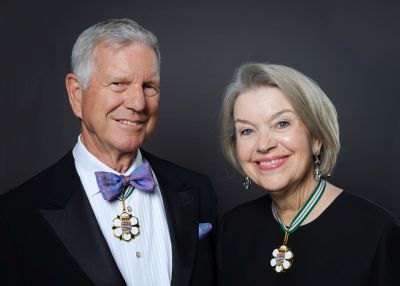
- Year: 2019
- City: North Saanich
- Region: Vancouver Island/Coast
- Category: Community Leadership
Brian Fehr
Brian Fehr supports the growth rural B.C. economies and contributes to the sustainability and safety of the forest industry through his innovations in the industry, commitment to maintaining operations in the North, and boards he serves on.
Although having only a Grade 12 education, he built a billion dollar group of companies — BID Group — that provides innovative technical systems and construction services for wood products industries in B.C., across Canada and into the United States and employs 400 in B.C. and 1400 more throughout North America.
As Fehr built his company, his personal and emotional commitment to the health and well-being of rural B.C. — and in particular Vanderhoof, Prince George, Salmon Arm and Canal Flats — remains strong. He is expanding manufacturing facilities in Vanderhoof, and is renovating a head office there. In Canal Flats, a community devastated by the rationalizing of the forest industry, Fehr has purchased a small steel fabrication business and he expects to employ 100 people at the facility within the next five years.
Always with an eye to innovation and through its subsidiary DelTech, the BID Group has developed biomass energy systems that lower energy costs and greenhouse emissions using wood waste that was formerly burned by the forest industry. Following the Babine and Lakeland sawmill explosions, Fehr developed a dust mitigation system that would not allow recurrence of these disasters and BID retrofitted all of the 15 Canfor sawmills with the system.
He foresaw the potential of artificial intelligence and the potential for machinery to make decisions that would improve productivity. His ‘profiling’ technology allows a log to be processed into lumber with a single pass, cutting labor costs. Auto grading, which uses computers to optimize the value of each piece of lumber by making decisions at a much higher production rate than manually grading lumber, has revolutionized the industry through minimizing loss in process, improvements in the value of finished products and cost reduction. His predictive maintenance processes for sawmills means equipment can be fixed before a breakdown occurs, increasing worker safety, and improving efficiency.
From a young age, Fehr struggled with alcohol and drug addiction that threatened both his life and financial stability. At 37 he focused on his recovery, overcoming odds against him. He now gives others a second chance by hiring them. As well, he is a champion for the Baldy Hughes Therapeutic Community in Prince George and participates on the Northern Interior Health Board. Fehr served on the board of the BC Association for Crane Safety where he championed the need for better training and changes to WorkSafe regulations. He also served on the board of directors of the BC Safety Authority (now Technical Safety BC).
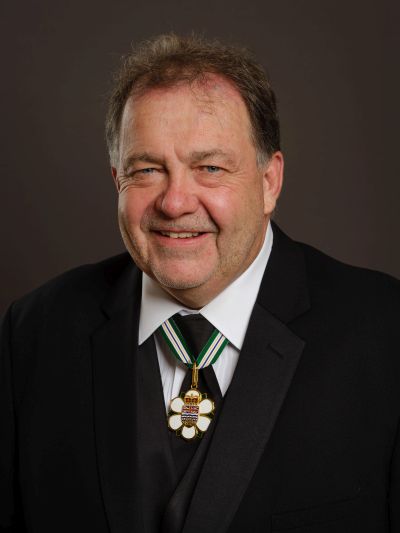
- Year: 2018
- City: Vanderhoof
- Region: Cariboo
- Category: Business
Sam L. Feldman
Sam Feldman might have lived anywhere. Born in Shanghai of Jewish parents whose ancestors had been persecuted in Russia, he and his family moved to the first place a visa was acceptable – Vancouver in the 1950s.
The Feldmans loved the peace they found in this sleepy Commonwealth outpost. Although young Sam Feldman experienced some degree of antisemitism growing up, this paled in comparison to the positive experience of growing up in Vancouver and the many life-long friends he made.
In the early 1970s, Vancouver’s entertainment scene was booming. It was very early in Feldman’s business career that he identified an opportunity and a desire to be part of that musical environment. He established himself by representing and booking musical artists for what became a launch pad for many iconic artists.
Feldman continues to turn that humble start into an international juggernaut, primarily through artist representation by building an internationally known talent agency and management firm that has been responsible for more than 250 million records and countless tickets sold from past and present clients, such as Joni Mitchell, Sarah McLachlan, Diana Krall, Elvis Costello, James Taylor, Tracy Chapman, Bette Midler and Norah Jones. While the numbers are impressive, Feldman measures success through long-standing relationships and the positive musical influence his clients have brought to the community and beyond.
After a staggering 50-plus years, Feldman’s involvement in various aspects of the entertainment business is still growing and his legacy is intact. Uniquely, at a time when Los Angeles, New York, and London were the epicentres of the music industry, he chose to stay in Vancouver. He has been quoted as saying: “I wouldn’t move elsewhere, as there is no better place than British Columbia to bring up your family.”
Contributing to the culture of this community and beyond is another part of Feldman’s legacy. From Expo 86 and the 2010 Olympics to countless sold-out stadiums, he’s brought some of the biggest musical acts in the world here to record and perform, and he’s sent some of B.C.’s biggest stars into the world. He’s proud to have contributed to the excellence of culture here, sharing values he learned from his mother, a high-level concert pianist, and his father, an amateur actor and salesman. His parents were a huge influence on him, and their mid-life immigrant status framed tough times. They urged him to work harder and shine brighter. Having watched their struggles, the lesson was not lost.
In an era when it was difficult for female artists to succeed, Feldman helped female clients through the headwinds, of what can only be characterized as a sexist industry, to access what their male counterparts were already achieving.
Having been born in Shanghai, China, in 1949, immigrating to Canada, with a Russian Jewish heritage and building an entertainment empire in a province most people had never visited, Feldman knew first-hand what it felt like to have to work twice as hard to succeed.
To be a successful music business entrepreneur, one must straddle the divide between art and commerce, and treat both with equal respect. Feldman is an interpreter – he has bridged those worlds. This is a skill set he has been able to bring to many good causes, using his connections and resources to support the revitalization of Chinatown, plus many health initiatives particularly targeted at youth.
Feldman has been recognized repeatedly, garnering awards such as the Walt Grealis Special Achievement Award for extraordinary contributions to the Canadian music industry, and the SOCAN Special Achievement Award for contributions to Canada’s music industry and heritage. He has been inducted into the Music Managers Forum Honour Roll, the BC Entertainment Hall of Fame and the Canadian Music Industry Hall of Fame.
Feldman is a huge believer in the positive change music can bring to people’s lives. It’s in the mission statement of his business and it’s key to his support of the Sarah McLachlan School of Music, Odd Squad Production Society, Zajac Ranch for Children, music therapy for children on the autism spectrum and many others.
It’s all part of giving back to the province he committed to so many years ago. Celebrity can be exciting, but it can also disappear overnight, unless you build a solid platform through exceptional relationships and hard work. Feldman has demonstrated that by building something honest and sustainable, you can literally change the world.
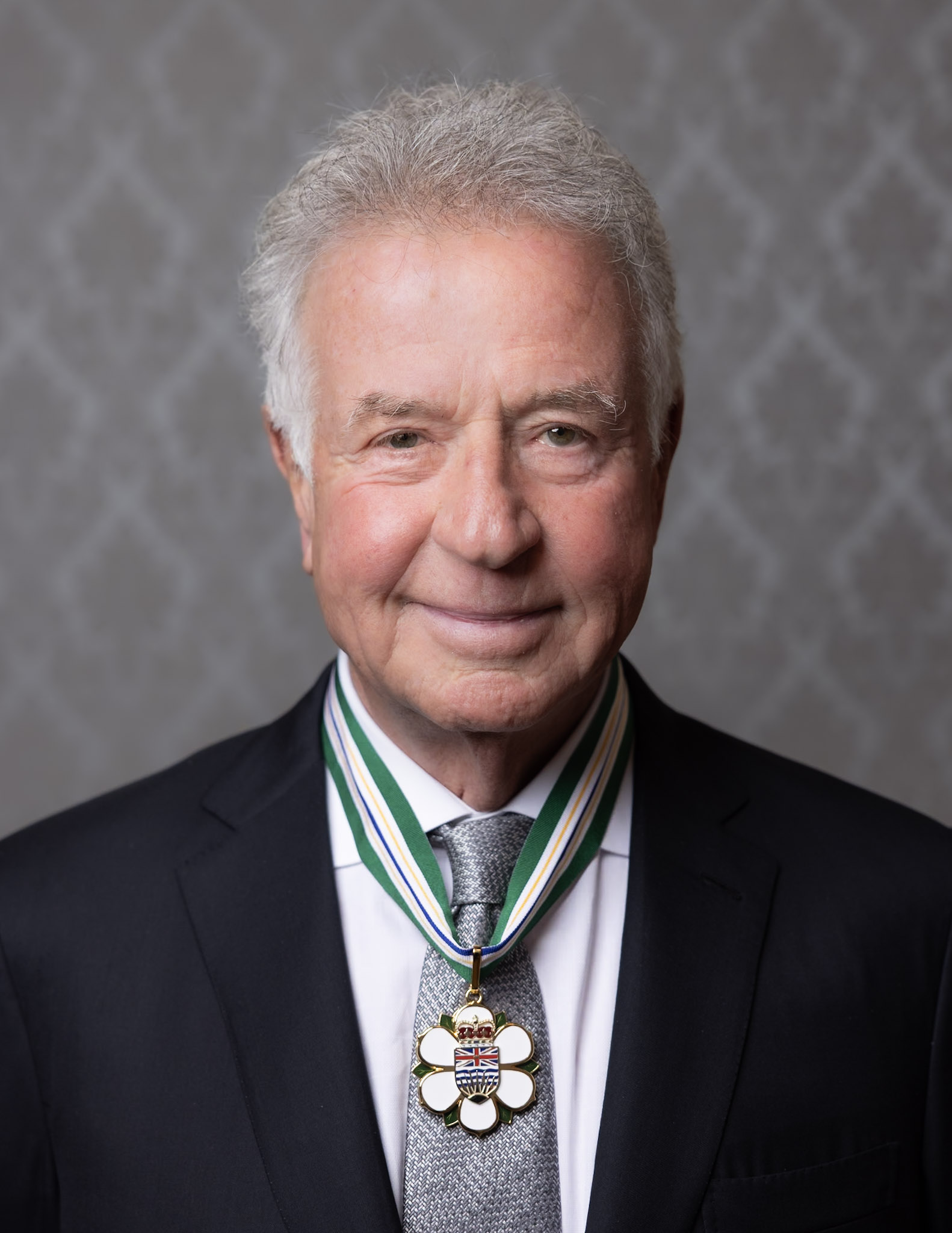
- Year: 2023
- City: Vancouver
- Region: Mainland/Southwest
- Category: Arts and Culture
Lance S.G. Finch *
Over three decades as a judge of B.C.’s two highest courts, including twelve years as Chief Justice of British Columbia, Lance Finch was a role model for how to be and do the difficult business of judging. His judicial decisions are admired for their thoughtfulness, lucidity and intellectual rigour and have influenced the Canadian legal landscape.
He was appointed to the B.C. Supreme Court in 1983, the year after the Charter of Rights and Freedoms came into force, and over his judicial career he consistently applied the Charter in a way that gave it full force and effect as a statement of Canada’s fundamental values. He is recognized for his decisions in the area of aboriginal rights and title in section 35 of the 1982 Constitution Act.
During his term as Chief Justice, he spoke passionately and courageously on the legal system’s need to address with a sense of humility the narratives and laws of indigenous people. He was a forceful advocate for access to justice, which he sought to construe as an essential public service, akin to education and healthcare.
He was committed to court innovation and under his watch the Court of Appeal modernized its case tracking system that enhanced access to justice. He also developed the Memorandum of Understanding that outlines the responsibilities of the executive and judicial branches.
His contributions are recognized throughout Canada and internationally as he played a leading role on the Canadian Judicial Council that has a number of functions including dealing with allegations of judicial misconduct for which he had special responsibility. He was also president of the International Society for the Reform of Criminal Law.
In retirement, Lance Finch became one of three founding trustees of Pro Bono Canada, which supports programs that deliver free legal services annually to more than 36,000 low income Canadians.
He received honorary doctorate of laws from the University of British Columbia, Thompson Rivers University, and the University of Victoria.

- Year: 2017
- City: West Vancouver
- Region: Mainland/Southwest
- Category: Professions and other occupations
B. Brett Finlay
An extraordinary academic scientist, Dr. Brett Finlay is making major contributions to human health and welfare – and to British Columbia.
Working in the Michael Smith Laboratories at the University of British Columbia, Dr. Finlay has combined animal cell biology and microbiology to establish the new field of cellular microbiology. This has allowed him to take major strides forward in infectious disease research.
He has worked to bring factual and timely information to decision makers and has used the news media to make his research meaningful to the public.
His research is highly creative, interdisciplinary, hugely productive, and full of significance to the general public.
Dr. Finlay initiated the Canadian Coalition for Safe Food and Water to foster research on improved food and water safety, dealing with issues such as antimicrobial resistance and bioterrorism, as well as discovered and developed a successful cow vaccine for E. coli O157.
Following the devastating outbreak of SARS worldwide, Dr. Finlay was asked to lead an effort to develop a human SARS vaccine. Due to the urgency of that situation, rather than the usual ten-year vaccine development cycle, Dr. Finlay pushed research forward to the point that three prototype vaccines were developed within six months, and a vaccine was selected within a year.
A leader and innovator, an internationally recognized authority in his field, and a contributor to improved human health, Dr. Finlay is an exceptional British Columbian.
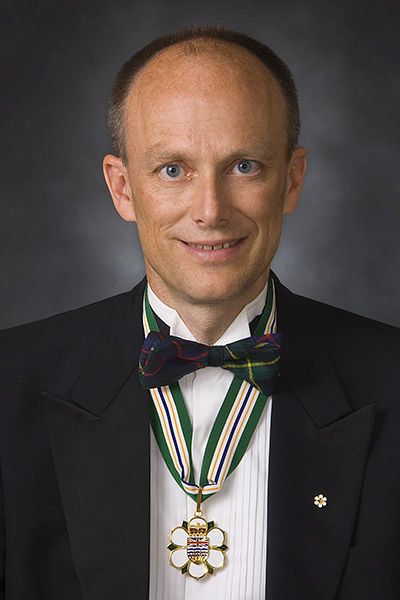
- Year: 2007
- City: Vancouver
- Region: Mainland/Southwest
- Category: Professions and other occupations
Honourable D. Ross Fitzpatrick
Ross Fitzpatrick’s commitment to British Columbians is demonstrated in many ways: business leader, volunteer, and ten years as a member of the Canadian Senate.
His special concern for First Nations has benefited the Okanagan Nation economically, environmentally and spiritually.
During his career, Mr. Fitzpatrick founded businesses in the aerospace, oil and gas, and mining industries. Business always meant caring for the environment. One of the mines he developed was recognized as a “model mine” by the U.S. Bureau of Lands and Management and it won various environmental awards.
In 1986, Mr. Fitzpatrick turned his attention to agriculture as he launched Cedar Creek Estate Winery and pioneered planting vinifera grapes to produce premium wines. He remains the proprietor of the winery and is Chairman of Greata Ranch.
From 1998 to 2008, Mr. Fitzpatrick served in the Senate representing Okanagan-Similkameen.
His work helped provide federal funding for projects including infrastructure upgrades, women’s shelters, detox centres and airport expansion. He was key in reacquiring Spotted Lake, a healing ground for First Nations, as well as helping establish the first aboriginal winery.
He supported the Westbank First Nations Self Government Agreement and the First Nations Fiscal Agreement. He was involved in Senate committees and guiding a range of bills to benefit parks, small business and pension plans.
He has served on numerous boards and societies and has received awards such as the Confederation Medal, the Queen Elizabeth II Golden Jubilee Medal, the Freedom of the Town of Oliver, the Freedom of the City of Kelowna, Westbank First Nation Recognition, and was named to the order of Canada.
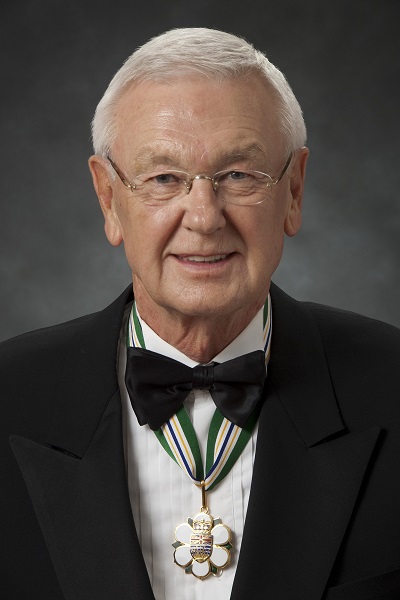
- Year: 2009
- City: Kelowna
- Region: Thompson/Okanagan
- Category: Business
Frances L. Fleming *
Pioneer British Columbia teacher Frances Fleming’s many achievements explain why she was known as “Superteacher”. Frances Fleming had many firsts to her name: she was the first woman administrator of a large B.C. secondary school, B.C.’s first woman superintendent of schools, a member of the first official Board of Trustees of the Sechelt Public Library Association, and spearheaded a campaign which finally resulted in the opening of a modern new fully automated library.
Mrs. Fleming was also a distinguished educator with the B.C. Ministry of Education. Under her leadership, Pender Harbour Secondary School became the smallest fully accredited B.C. school. In a survey that year, the Province newspaper rated that school the best in B.C., based on the Provincial Grade 12 results.
At age 83, she continued to keep abreast of educational developments and wrote numerous articles for publications.
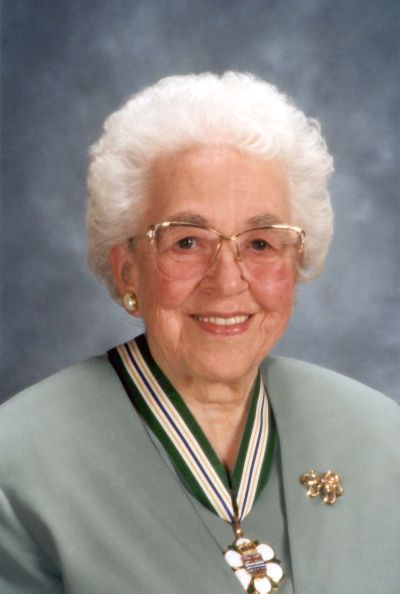
- Year: 1997
- City: Sechelt
- Region: Vancouver Island/Coast
- Category: Education
Tom James Foord *
Tom Foord was an unselfish community volunteer and an exceptional business leader who started Kal Tire in Vernon 46 years ago.
His company, with over 1,500 employees, is the independent largest tire dealer in Canada. Starting with his purchase of a small garage that had gone bankrupt, Kal Tire expanded in the 1950s and 1960s to provide service to B.C.’s forestry and mining industries and has now grown from one tire store to more than 150 stores. Kal Tire recently opened a service facility in South America where it uses the experience gained in British Columbia to sell goods and services to the mining industry in Northern Chile.
A resident of Vernon since 1945, he was recognized as an outstanding citizen of the community. He served as honorary chair of the Vernon Hospice Society and was a long-time supporter of the United Way. Tom Foord helped The People Place Society buy land for the building which now serves as home to many North Okanagan community organizations which benefit from the long-term affordable work space.
In 1989 he was acknowledged by the City of Vernon with its The Most Valuable People Award for his outstanding contribution to the community and in 1993 with its Corporate Good Citizen of the Year Award.

- Year: 2000
- City: Coldstream
- Region: Thompson/Okanagan
- Category: Business
Marguerite Ford
Marguerite Ford served the people of Vancouver as a member of City Council and as a volunteer in numerous organizations in the field of health care and housing for the elderly. During her 10 years on Vancouver City Council, she served on the Metropolitan Board of Health, the Vancouver Hospice Project and the Greater Vancouver Mental Health Service. She also chaired the Committee on Disabled for nine years.
She has served as President of the United Way of the Lower Mainland, has chaired the community affairs committee of the Vancouver Board of Trade, and has served as Executive Director of the Alzheimer Society of BC. Her volunteer work in the health care and housing field include the Vancouver General Hospital, St. John Ambulance, the Katherine Sandford Housing Society and the Italian Community Centre Senior Citizen’s Housing Society.

- Year: 1997
- City: Vancouver
- Region: Mainland/Southwest
- Category: Community Leadership
Judith Forst
Order of Canada recipient Judith Forst is an opera singer who began her training and career at University of B.C., and has triumphed with all the leading opera houses in the world. She has been a staunch supporter of new composers, fellow performers, directors and conductors, and has mentored young professionals and students in North America and abroad, helping many to become outstanding performers. Each year, she performs benefit concerts and gives her time and energy to fundraising projects throughout B.C.
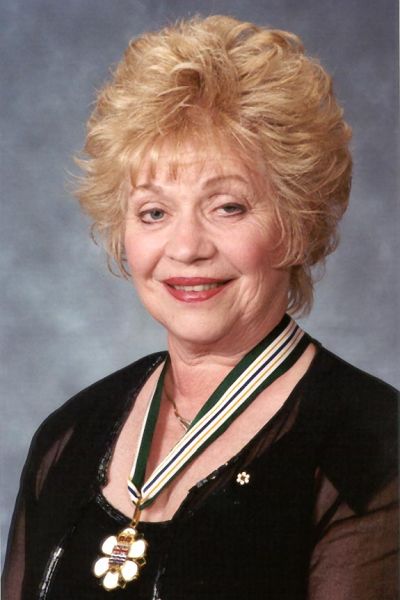
- Year: 2001
- City: Port Moody
- Region: Mainland/Southwest
- Category: Arts and Culture
David Foster
From a very early age, it became apparent that David Foster was going to make his mark on the music scene. This he has certainly done, with a long list of Grammy Awards and Academy Award nominations for his music and songs. In fact, there may be only four or five Canadians who have ever reached such international success and recognition in the music field.
Born in Victoria, David Foster progresses quickly from piano lessons at the age of five to a summer music scholarship at the University of Washington at the age of 13. At sixteen he was launched into his professional musical career in the backup band for rock ‘n roll legend Chuck Berry.
After moving to Los Angeles in 1971, he built a solid reputation as a musician, composer, arranger and producer whose talents were sought by a virtual who’s who of the music world.
But he is much more than a successful and respected international music giant. He has added even more lustre to his list of credits with the David Foster Foundation Society, giving generously of his time and talent to raise money to assist families of British Columbia children who require organ transplants. The Foundation has raised more than one and a half million dollars over the past seven years so that children won’t have to be alone through this traumatic time.
In recognition of his musical success and humanitarian efforts, David Foster received the Order of Canada, and was recently granted an Honorary Doctorate from the University of Victoria.
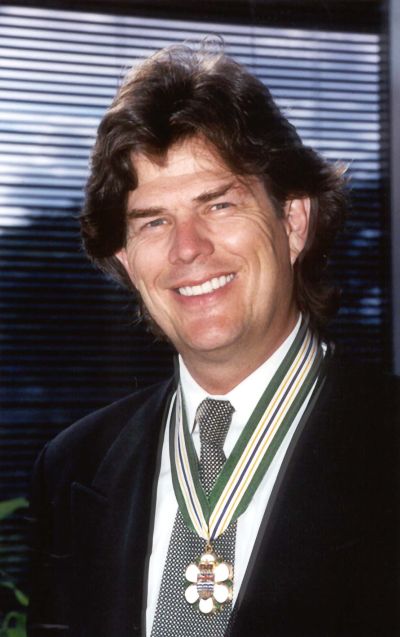
- Year: 1995
- City: Santa Monica
- Region: Out of Province
- Category: Arts and Culture
Debra L. Foxcroft
Over the past 30 years, Debra Foxcroft has led advancements in aboriginal child welfare. As a consultant and chair of the Vancouver Island Aboriginal Transition Team, she is spearheading a new model of child welfare. Foxcroft developed and directed the first delegated First Nations child and family service in British Columbia, serving the Nuu-chah-Nulth Tribal Council. Foxcroft coordinated a valuable Indian Child and Family Services Standards Project on culturally appropriate standards, which has been used nationwide. She chaired the First Nations Summit Child Welfare Committee for nine years, providing strong leadership and negotiating on behalf of the Chiefs engaged in the Treaty Process.
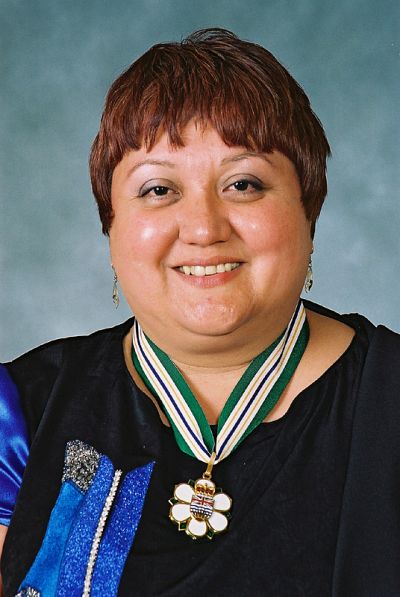
- Year: 2003
- City: Port Alberni
- Region: Vancouver Island/Coast
- Category: Community Leadership
John Fraser *
John Fraser had a long and illustrious career in Canadian public life. Any attempt to list his many accomplishments soon becomes a long recitation.
First elected to the House of Commons representing Vancouver South in 1972, he was returned to Ottawa five times. Recognition from his peers in the House of Commons followed when he became the first Speaker to be elected by secret ballot in 1986 and again in 1988.
As former Environment Minister and Minister of Fisheries and Oceans and throughout his personal life, John Fraser made a measurable contribution to the environmental quality of North America. His efforts produced an international Canada-U.S. treaty to prevent the flooding of parts of B.C. by the proposed Skagit River dam in Washington; the establishment of a U.S.-Canada agreement on acid rain abatement; the rehabilitation and conservation of Pacific salmon stocks and habitat through the Pacific Salmon Treaty; and the preservation of the South Moresby archipelago as a national park reserve.
Recognition for his many contributions have come in the form of numerous honours ranging from Beijing University to the International Union for Conservation of Nature and Natural Resources.
John Fraser was an honorary chairman or patron of several environmental organizations, including the Worldsphere Foundation, the B.C. Forests in Israel project, and Canada’s Environmental Law Centre.
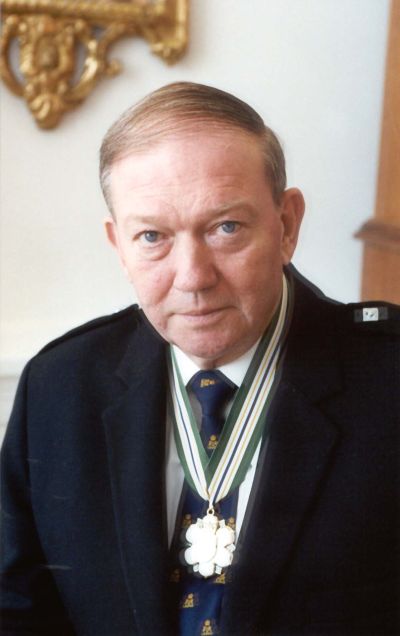
- Year: 1995
- City: Vancouver
- Region: Mainland/Southwest
- Category: Public Service
Timothy J. C. Frick
Timothy J. C. Frick of Port Coquitlam has been a coach for over 30 years, 11 of those coaching wheelchair basketball. He has had a positive impact on the lives of thousands of athletes. He was instrumental in the planning and implementation of the Rick Hansen Man in Motion Tour which raised the world’s awareness of the potential of people with disabilities and the barriers they face. He is the “winningest” coach in women’s wheelchair basketball and the only coach in Canada to win a Gold Medal at the World Championship or Olympic Games in basketball, able-bodied or wheelchair.
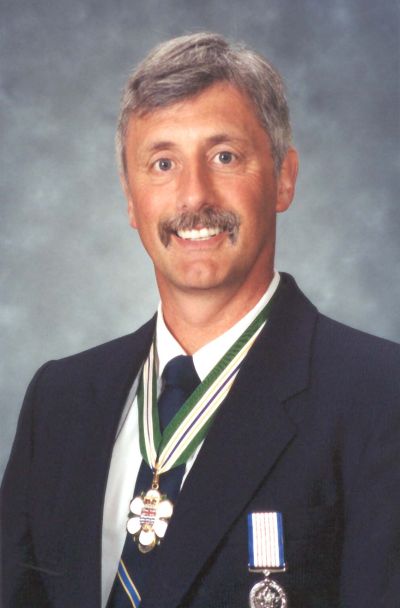
- Year: 1999
- City: Port Coquitlam
- Region: Vancouver Island/Coast
- Category: Sports and Recreation
Dr. Jiri Frohlich *
Recognized as the founder of modern preventative heart disease practices, Dr. Jiri Frohlich’s research and clinical work shaped contemporary medical thinking around the link between cholesterol and heart disease. As well, he led the creation of national guidelines for identification and treatment for inherited heart disease.
As former Professor of Pathology at UBC and Academic Director of the Healthy Heart Program at St. Pauls’ Hospital, he was the provincial opinion leader on the relationship between cholesterol and heart disease and was one of Canada's most influential and respected medical leaders.
He was among the first physicians in Canada to address the need for identification and treatment of inherited dyslipidemia — high blood fats including cholesterol and triglycerides — that is not the fault of lifestyle. He was the lead author on the first Canadian guidelines for the management of dyslipidemias commissioned by Health Canada in 1998.
In 1980, he established the Lipid Clinic in Western Canada, which specifically diagnosed and treated lipid and cholesterol disorders to prevent heart disease. The clinic, the largest of its kind in English Canada seeing several thousand patients visits a year, is now part of a broader prevention strategy since merging with the Healthy Heart Program. He then founded the Healthy Heart Society (HHS) of British Columbia, which supports all health care providers across the province working in the area of heart disease prevention.
He conducted over 200 clinical and basic science research studies to establish the cause of the diseases and strategies for treatment. He also investigated the safety and effectiveness of cholesterol lowering strategies including, diet, exercise, nutritional supplements and prescription drugs. He published hundreds of scholarly papers leaving a legacy where all British Columbians have access to evidence-based strategies for cholesterol management.
Dr. Frohlich’s list of awards and recognition includes the BC Heart and Stroke Foundation outstanding contribution award; the Ludwig Sherman Memorial Award; the Canadian Society of Clinical Chemists Research Excellence award; David Hardwick Lifetime Achievement award; and the BCMA Excellence in Health Improvement Award. Numerous times he has been awarded Distinguished Medical Scientist awards.
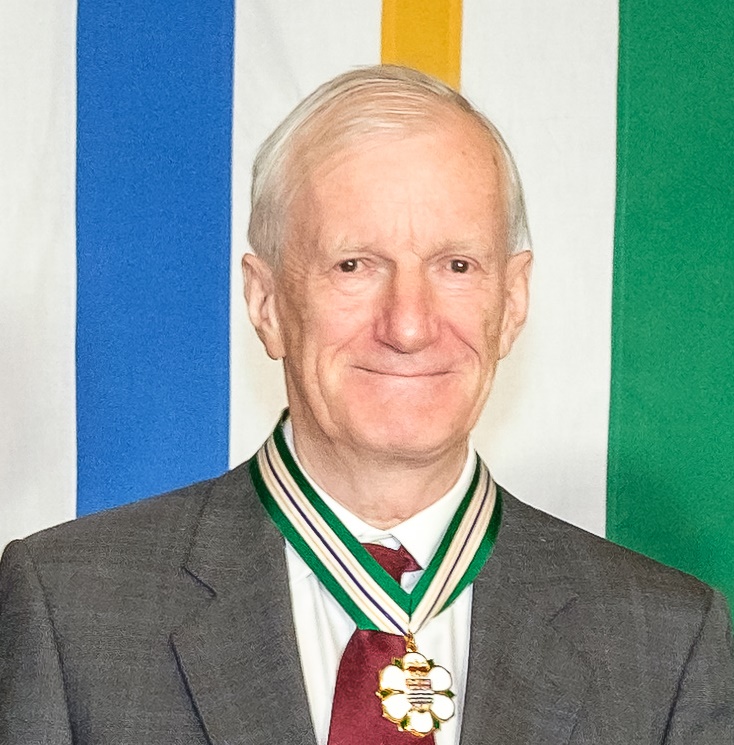
- Year: 2017
- City: Vancouver
- Region: Mainland/Southwest
- Category: Professions and other occupations
Lori Fung
Rhythmic gymnastics is a sport that requires an incredible degree of discipline and dedication.
Lori Fung began training in 1976 and the following year was already competing in the National Championships. Hearing that rhythmic gymnastics would be included in the 1984 Olympics, Lori took her grade 12 courses by correspondence and started training in earnest.
She became B.C. Provincial Champion in her class for the years 1977, 1978, 1979 and 1980. She came first in national competition in 1982 and placed first in the Invitational Meet in Switzerland the following year and went on to become seven-time Canadian Grand National Champion.
She capped her brilliant career with the distinction of winning the first Gold Medal ever in rhythmic gymnastics at the 1984 Olympic Games.
Today, Lori is a world-class coach in rhythmic gymnastics at UBC with a reputation for excellence and extraordinary effort and enthusiasm. She acts as a role model for all young women and has the ability to instill in her students a desire to excel. This has been borne out by the national team members emerging from her classes.
She has brought credit to the Province through her live performances for visiting dignitaries including Pope John Paqul II and Their Royal Highnesses, the Prince and Princess of Wales.
Lori extends her hard work and determination to the community where she actively promotes fitness through TV, radio and personal guest appearances. She is currently honorary Chairperson of the Canadian Cancer Society.
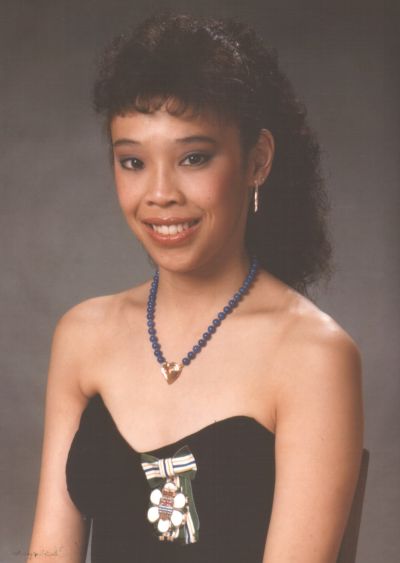
- Year: 1990
- City: Vancouver
- Region: Mainland/Southwest
- Category: Sports and Recreation
John Furlong
John Furlong is one of Canada’s most influential sport leaders and was most recently the face of the Vancouver Organizing Committee for the 2010 Olympic and Paralympic Winter Games (VANOC).
As CEO of VANOC, Mr. Furlong was the team leader who organized and delivered the Olympic Games to positive reviews the world over.
Prior to his appointment at VANOC, Mr. Furlong was the President and Chief Operating Officer for the Vancouver 2010 Bid. In this role, he became the Bid’s international voice, tirelessly clocking more than 1.2 million miles in his travels to promote Vancouver’s candidacy.
Mr. Furlong, a long time member of the Canadian Olympic Committee, has been involved in athletics all of his life, having competed at the international level in basketball, European handball and squash. He became Canadian Squash Champion in his age group in 1986.
Mr. Furlong has also led many high profile sports organizations in Canada and has served as the Chair of the B.C. Summer and Winter Games, and Sport B.C.
In 2009 Mr. Furlong was named Canada’s Most Influential Sport Figure by both the Globe and Mail and the CBC. Most recently Mr. Furlong was named B.C.’s Sportsman of the Decade.
Mr. Furlong has been awarded honorary doctorate degrees from UBC, the Justice Institute, and BCIT.
Earlier this year, Mr. Furlong was appointed an Officer of the Order of Canada, for his contributions to the planning and realization of the Vancouver 2010 Olympic and Paralympic Winter Games.
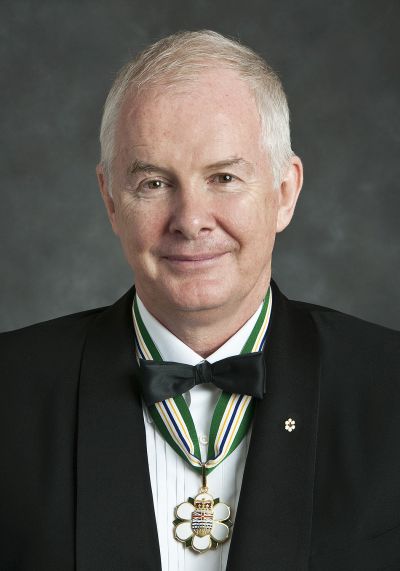
- Year: 2010
- City: Vancouver
- Region: Mainland/Southwest
- Category: Sports and Recreation
Gordon J. Fyfe
Gordon Fyfe is an exceptional leader who has been recognized globally for his efforts in combating financial fraud, his advocacy for environmental, social and governance issues, and his outstanding achievements as CEO of the British Columbia Investment Management Corporation (BCI).
As CEO of BCI, Fyfe has achieved extraordinary results by transforming the organization into a highly respected and successful industry player. Its investments have increased from $112 billion to $235 billion, resulting in significant returns that have been beneficial for B.C. residents. Investments for which Fyfe is accountable provide 75 cents of every dollar in public-sector pensions.
As the CEO of BCI during the COVID-19 pandemic, Fyfe faced significant challenges in navigating the financial markets amid a global health and financial crisis. His decisive leadership and sound decision-making enabled BCI to weather the storm and maintain a strong financial standing.
Despite his achievements, Fyfe does not seek personal attention. He remains humble. His experiences growing up working on farms and in sawmills ensure that pensioners are protected today. Fyfe’s life was affected greatly by the loss of his father’s pension in the Eaton’s bankruptcy. Witnessing his parents struggle with financial insecurity and dependence in their later years motivated him to dedicate his life to preventing other families from facing the same traumatic experience.
Fyfe had been a global banker and private asset manager when he chose to enter the public service in Canada. He had served as the CEO of the federal Public Sector Pension Investment Board and also held a leadership role at Caisse de dépôt et placement du Québec before returning to his hometown of Victoria. Throughout his extensive 35-year career in finance and investment, he has successfully managed assets worth over half a trillion dollars.
Fyfe has been tireless in his efforts to promote ethical practices in the financial industry, and to hold those who engage in fraudulent activities accountable for their actions. He has been instrumental in fostering a culture of transparency and accountability within the investment management community and has worked tirelessly to ensure that B.C. residents can trust in the integrity of the financial-services sector.
Fyfe has been a passionate advocate for environmental, social and governance issues, recognizing that healthy communities depend on healthy ecosystems, and that both must be preserved if we are to thrive as a society. He has taken a leading role in promoting sustainable investing strategies that prioritize diversity, gender equality, Indigenous reconciliation and responsible practices across a range of industries. He has ensured that the investment decisions made by BCI reflect the values of the people of the province.
BCI was among the first Canadian institutional investors to sign the United-Nations-supported Principles for Responsible Investment. Fyfe has led an impressive initiative that offers opportunities for Indigenous youth to acquire expertise in finance and asset management to help equip them to independently and successfully handle funds generated through economic reconciliation. With Vancouver Island University, BCI has established a program that provides scholarships, work experience and education in financial literacy, with more educational institutions to come.
Fyfe has overseen an investor group managing $7.3 trillion worth of assets that encourages companies to achieve a gender-diverse workforce by including underrepresented communities, including Black, Indigenous and other visible minorities, individuals with disabilities and members of the LGBTQ2S+ community in leadership and governance roles.
Fyfe has established BCI as an internationally respected investment powerhouse with successful partnerships established around the world. He has made B.C. competitive with the BlackRocks of the world, all while keeping his B.C. values. He has transformed BCI into an in-house asset manager, increasing control of the assets for which he is responsible and reducing fees paid to outside managers, thereby increasing the share of returns for pensioners.
His astute vision has grown BCI to three international offices, 750 employees and established one of the world’s largest real-estate companies (QuadReal), all looking after 750,000 pension-plan members.
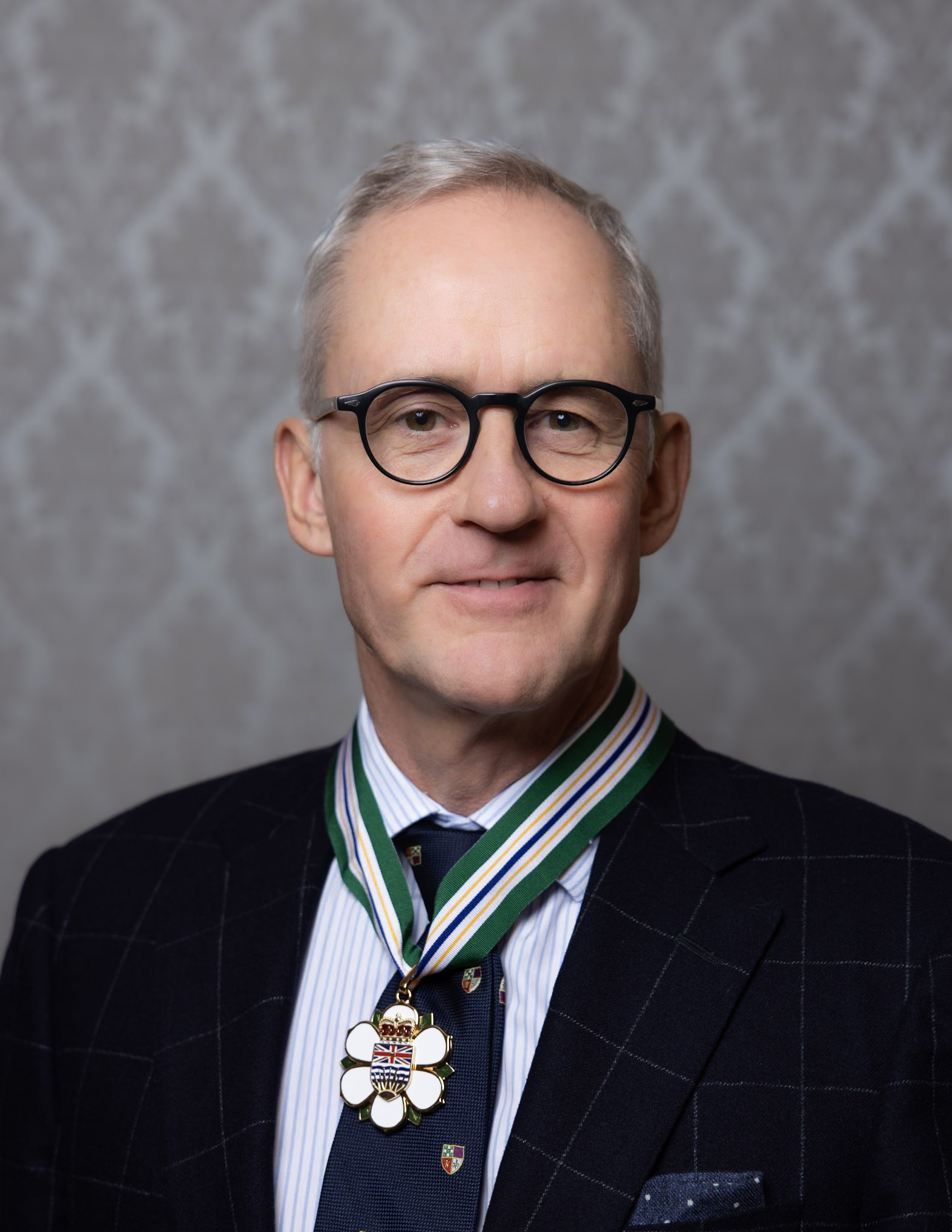
- Year: 2023
- City: Saanich
- Region: Vancouver Island/Coast
- Category: Public Service
G
Honourable Garde B. Gardom *
Garde B. Gardom, Q.C., practised law in Vancouver until 1966 when he was elected as a member of the legislative assembly. He was re-elected five times and served in several cabinet positions. In 1987, after retiring from politics, Gardom was appointed agent general for British Columbia in London, England. In April of 1995, Gardom was appointed the 26th Lieutenant Governor of British Columbia. Gardom is a Knight of St. John and the honourary colonel of the British Columbia Regiment.
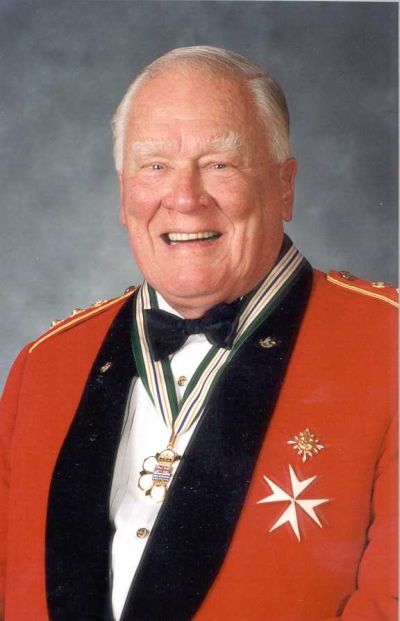
- Year: 2002
- City: Vancouver
- Region: Mainland/Southwest
- Category: Public Service
Christopher Gaze
Mr. Christopher Gaze has elevated the cultural standard of Vancouver, the Lower Mainland and all of British Columbia. The founder and artistic director of Bard on the Beach Shakespeare Festival in Vancouver, Mr. Gaze is leading the Festival into its 23rd season.
More than 90,000 people from Canada, the United States and beyond attend Bard on the Beach each season. The Festival is a $4 million annual operation, contributing significantly to British Columbia’s arts sector employment and our economy.
Mr. Gaze has provided a strong focus on the actors and audiences of the future. He created Young Shakespeare Acting Program Workshops, allowing more than 275 young people to train each summer with seasoned professionals on the Bard stages. The Festival also developed its Student Matinee Series, which introduces more than 10,000 students each year to the magic of Shakespeare’s stories and language.
Mr. Gaze hosts 20 concerts each year with the Vancouver Symphony Orchestra and sits on a variety of boards including Chor Leoni Men’s Choir and the Health Arts Society. He has received prestigious honours from the B.C. Entertainment Hall of Fame, Canada’s Meritorious Service Medal, Honorary Doctorates from SFU and UBC, the B.C. Community Achievement Award, the 2007 Gold Medal Medallion from the Children’s Foundation of America and the 2011 Mayor’s Arts Award for Theatre.
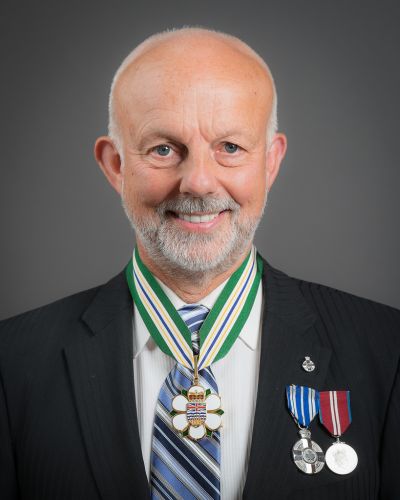
- Year: 2012
- City: Vancouver
- Region: Mainland/Southwest
- Category: Arts and Culture
Joan P. Gentles
Joan Gentles is well known across the Cariboo-Chilcotin as a tireless community leader whose selfless efforts have brought positive change in the lives of Natives and non-Natives alike.
A member of the Toosey Indian Band, Joan Gentles was the first Native court worker in the Williams Lake area. She was instrumental in sensitizing the courts, the legal profession and the police to Native justice issues.
She is a strong advocate for improving the justice system to ensure that Native people receive fair and equitable treatment when they come before the courts.
After obtaining a Bachelor of Education from the University of British Columbia, Joan Gentles became Native Education Coordinator for the Cariboo-Chilcotin School District.
She teaches at schools in remote communities and invariably spends many more evening hours counselling victims of family violence and sexual abuse, conducting alcohol abuse awareness workshops, teaching children traditional activities such as ceremonial dancing, or teaching parenting skills to teenagers and adults.
Joan Gentles’ interests also include a uniquely Cariboo-Chilcotin love for rodeos, in fact, she comes from a distinguished Cariboo rodeo family. Once an active participant herself, she now serves as a rodeo judge and teaches at judging seminars.
Joan Gentles has dedicated her life to serving the needs of the Chilcotin and other Native peoples and to changing the stereotypical attitudes that many non-natives still hold.
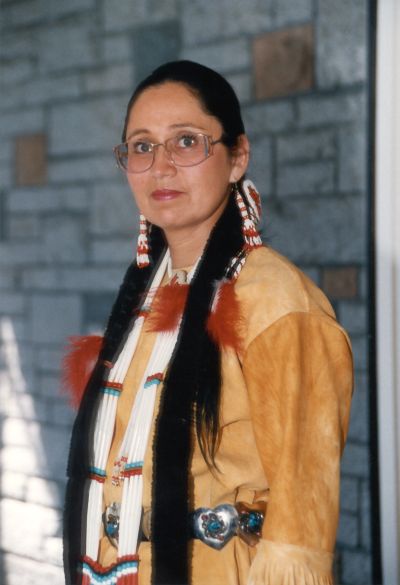
- Year: 1992
- City: Williams Lake
- Region: Cariboo
- Category: Education
Patsy George
Patsy George is a social worker who has worked with low-income groups, supported the anti-poverty movement, promoted aboriginal development and encouraged community development. George is a founding member of the Vancouver Society of Immigrant Women and was vice-president of the National Organization of Immigrant and Visible Minority Women. She was a founding member and chair of the Pacific Immigrant Resources Society. The federal government appointed her to the refugee appeal board, where she served for three years.
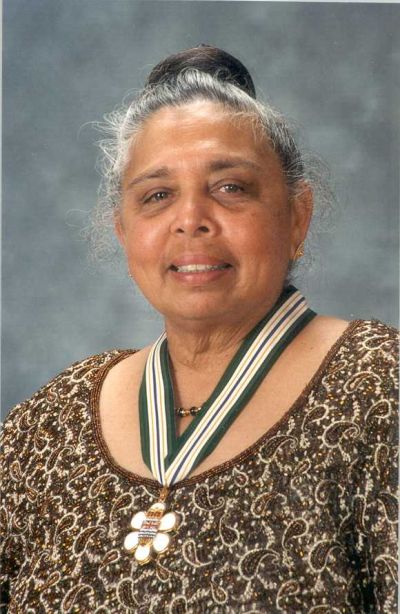
- Year: 2002
- City: Vancouver
- Region: Mainland/Southwest
- Category: Community Leadership
Paul George
Over the course of 40 years Paul George has helped to steward a contemporary view of British Columbia beyond a province of just resource extraction with the creation of the Western Canada Wilderness Committee.
George, a Vietnam war objector, immigrated to Canada from the U.S. in 1968 to teach senior high school sciences, drawn to B.C. by the magnificent images of its wilderness. Work, research and friendship in Haida Gwaii led Paul to collaborate with Haida leader Guujaaw and others in order to protect Gwaii Haanas (South Moresby), today a Haida Heritage Site and National Park Reserve.
In 1980, George founded Western Canada Wilderness Committee (Wilderness Committee) with a group of friends. Under his leadership the organization grew to over 100,000 members with donors across Canada.
In 1983, George helped to found North America’s first Green Party, the Green Party of B.C.
From 1980 to 2005, George led dozens of campaigns building public support for wilderness protection. He left WCWC after writing his seminal book about the organization, its campaigns and tactics: “Big Trees not Big Stumps.”
Through education and facts, with beautiful images of endangered wild places alongside graphic images of large-scale clear-cut logging, George helped shape an era of public focus on wilderness protection, laying the bedrock for political decisions to protect more of British Columbia’s magnificent natural heritage.
An inspirational leader, George came up with ideas for unique campaigns, tactics and strategies that no other environmental group had used including widely distributed educational newspapers, and building the world’s first upper canopy temperate rainforest research station.
George co-authored over 120 newspapers, each with a call to action on a specific wilderness area or wildlife cause and often in collaboration with local conservation groups. The largest run, “Conservation Vision for Vancouver Island,” saw over 300,000 distributed to households in every community on Vancouver Island. Featuring a scientific analysis recommending half the Island’s remaining wilderness be protected in order to save biodiversity, the paper prompted loggers to chant “12 percent and no more” in a protest on the lawns of the legislature.
George also launched the trail-building that became a renowned WCWC activity, involving hundreds of volunteers. He believed that enabling people to see beautiful places under threat was essential to building support for their protection.
Working with First Nations, George campaigned collaboratively with the Haida, Nemiah, Nuu-chah- nulth, and Squamish Nations to declare several Tribal Parks founded in Indigenous rights and title. He also pushed the boundaries of law, winning cases that established the right of an environmental group to represent wildlife in B.C. court (re: the B.C. wolf kill) and the right of public access to Crown land under tree farm license (Carmanah Valley). Some of the successful campaigns George worked on included South Moresby (Gwaii Haanas National Park Reserve), Stein Valley, Carmanah Valley, Meares Island, Clayoquot Sound, and Stoltmann Wilderness (Elaho Valley).
Over 25 years, his tireless work resulted in the park protection of millions of hectares of wilderness areas and a lasting legacy for all British Columbians.
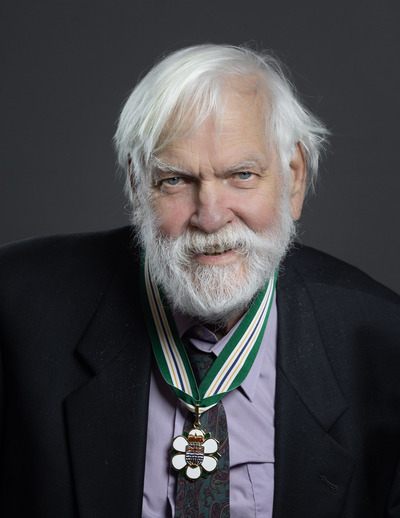
- Year: 2020
- City: Gibsons
- Region: Mainland/Southwest
- Category: Environment/Conservation
Kenneth Georgetti
Like his father, Ken Georgetti went to work at the giant smelter in Trail, B.C., where he earned his trade ticket as a pipefitter. Active with the United Steelworkers of America, in 1986 he became president of the British Columbia Federation of Labour. Advocating what he calls “intelligent militancy,” he has demonstrated a rare ability to bring together labour and management in joint projects that benefit all British Columbians.
Kenneth Georgetti wears a number of hats to improve the lot of British Columbians, and he chairs and sits on a score of educational and sporting committees.
He is honourary chairperson of the Association of Learning Disabled Adults, chair of the Pacific Region Labour Education Studies’ Centre, and chair of the Working Opportunity Fund. He is director of the Whistler Olympics 2010 Bid Committee and on the steering committee of the 2001 Pacific Games bid. He sits with the UBC Board of Governors.

- Year: 1998
- City: Burnaby
- Region: Mainland/Southwest
- Category: Labour
Leila Getz
Leila Getz had a dream-to present outstanding musicians in recitals for Vancouver music lovers. In 1980, she brought that dream to life when she founded the Vancouver Recital Society. Her vision and leadership have established the Society as one of North America’s most respected classical music organizations and its concerts are sought-after platforms for presenting new talent. As artistic director, she has been instrumental in launching the careers of numerous emerging local and international artists, and brought renowned artists to Vancouver from around the world.
In 1986, she established the successful Summer Chamber Music Festival, showcasing the finest and most promising young musicians from Canada and abroad. The Festival has commissioned new works, held workshops for young musicians, and has reached out to the community with free concerts. One of her brainwaves was a summer “Musical Instrument Petting Zoo”, where with a gathering of the festival’s musicians, children can touch, feel, blow into, strum and familiarize themselves with the instruments. This proved to be a huge success, and led to innumerable demands for music lessons.
Ms. Getz has served on the juries of the national finals of the Canadian Music Competitions, the Canada Council, the Ontario Arts Council, the nominating committee for the Governor General’s Performing Arts Awards, and is a member of the International Council for the Esther Honens International Piano Competition.
Ms. Getz received an Achievement Award from the State of Israel Bonds in Vancouver; the Canadian Arts Presenters’ Association Award in Toronto; and the International Association of Performing Arts Presenters’ Harold Shaw Award in New York. She received the YWCA Woman of Distinction Award for Arts and Culture, a Canada 125th Anniversary Medal, and a Golden Jubilee Medal.
In 1994, Leila Getz was appointed a Member of the Order of Canada.
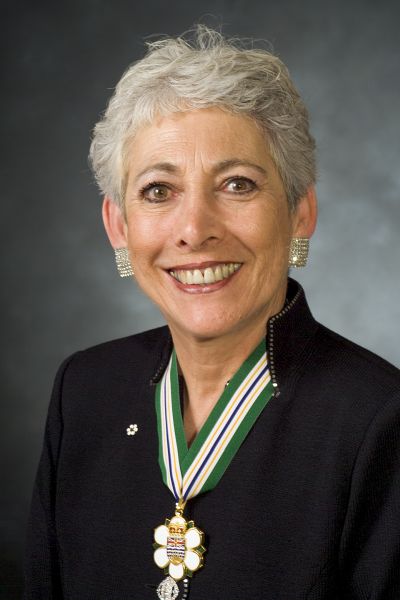
- Year: 2004
- City: Vancouver
- Region: Mainland/Southwest
- Category: Arts and Culture
Anne Giardini
Anne Giardini is a celebrated B.C. business leader, board director, lawyer, community advocate and internationally-published writer who had a distinguished career for two decades with the Canadian subsidiary of one of the world’s largest international forest products companies, Weyerhaeuser. Six of those years she was Canadian president after serving as Canadian General Counsel.
A thoughtful leader, Giardini provided strategic advice and direction for the Canadian operations of Weyerhaeuser, led acquisitions and divestitures across Canada, the US and Mexico, developed lasting relations with Indigenous groups, ensured safety and sustainability, and oversaw international ethics matters.
She has blazed a trail for women in business, law and board directorship, exceling in her roles, inspiring other women to follow, and — as a person of influence in so many fields — demonstrating that one not need limit one’s interests, nor be limited by one’s gender. She served on The Law Society of British Columbia’s retention of women task force, federal advisory council for promoting women on boards, and chaired the YWCA Women of Distinction Awards. She has also been the manager of a Thunderbird minor hockey team.
She serves or has served on the boards of numerous organizations including: CMHC, TransLink, World Wildlife Fund-Canada; Nevsun Resources; Vancouver International Writers and Readers Festival; Greater Vancouver Board of Trade, where she is immediate past chair; BC Council of Forest Industries; SFI; Forest Products Association of Canada, where she chaired the Aboriginal relations committee; PEN Canada; Writers Trust of Canada, and BC Achievement. She is the 11th chancellor of Simon Fraser University and serves on its board of governors.
She is the author of two acclaimed novels, The Sad Truth about Happiness and Advice for Italian Boys, and a collection of her mother’s writing advice, Startle and Illuminate.
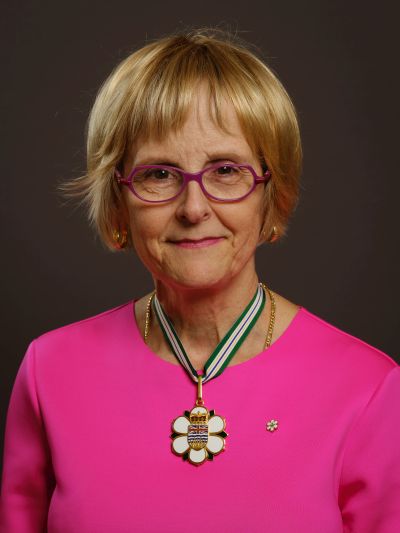
- Year: 2018
- City: Vancouver
- Region: Mainland/Southwest
- Category: Professions and other occupations
Gordon F. Gibson *
A long-time participant in British Columbia's political life, Gordon Gibson was a significant contributor to informed public discourse on public issues in British Columbia for decades.
Mr. Gibson served as assistant to the Prime Minister from 1968 to 1972, ran in three federal elections, and was elected to the provincial Legislature twice.
Since leaving elected office, Mr. Gibson had been a prolific writer and commentator on public policy issues. He was commissioned to design British Columbia's Citizen's Assembly on Electoral Reform and had written on senate reform, national unity, Aboriginal issues, and the role of British Columbia in confederation. He had contributed to the quality of public debate on these and other topics.
Mr. Gibson served on the board of the Westshore Terminals Income Fund and on the advisory boards of the University of British Columbia Graduate School of Journalism and the UBC Centre for the Study of Democratic Institutions. He was an honorary director of the BC Civil Liberties Association, and the advisory board of the Canadian Constitution Foundation.
Mr. Gibson enriched our province and aided British Columbians in their search for solutions to complex issues.
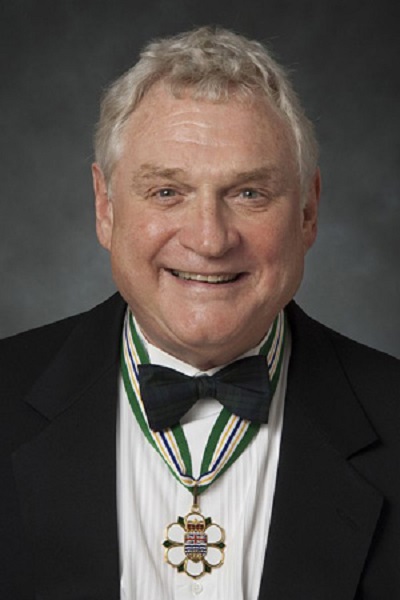
- Year: 2008
- City: Vancouver
- Region: Mainland/Southwest
- Category: Public Service
Evanna Brennan * and Susan Giles
Evanna Brennan, RN, and Susan Giles, RN, have provided life-saving care to people living with HIV/AIDS and other significant health issues in Vancouver’s Downtown Eastside for more than 40 years.
They took action at the beginning of the HIV epidemic. Similarly, they reacted quickly to the drug and overdose crisis as it developed into what it is today. Throughout it all, they have remained stalwart pillars of advocacy, care and compassion for Vancouver’s most vulnerable population. They have provided crucial assessment, medication and wound care while helping connect patients to the health-care system. They are exceptionally dedicated to their work, having continued past their 2012 retirement from Vancouver Coastal Health, through the worst of the COVID-19 pandemic and Brennan surviving cancer.
At 76 and 70 years old, respectively, Brennan and Giles continue to work regularly, plunging into chaotic and sometimes dangerous situations to provide vital care. Their two-nurse-visit approach bolsters them and allows them to combine their expertise to provide effective patient care.
Generously, they have shared their knowledge and experience, contributing significantly to nursing education in B.C., Canada and beyond. They have taught nursing students from Canada, the U.S., Europe and Asia. They have presented at national and international conferences, such as the International Conference on HIV/AIDS, Canadian HIV/AIDS Skills Building, Canadian Palliative Care and the American Association of Nurses in AIDS Care. They are long-standing members of the Canadian Association of Nurses in HIV/AIDS Care (CANAC) and have presented repeatedly at their own professional conferences.
In 1999, they were co-recipients of CANAC’s Jill Sullivan Award of Excellence in HIV/AIDS Nursing and later the Award of Distinction in Nursing. A recent award-winning documentary about their approach to nursing, titled Angels on Call, has been presented at professional conferences. It is available online.
Brennan and Giles have used their extensive experience to develop an innovative model for nursing called Action-Based Care, or ABC, which is a holistic, relationship-based approach to nursing that emphasizes flexibility. That is being able to adjust and respond quickly to situations. If the person’s immediate need is not met, there is little chance of them allowing any health intervention. ABC also incorporated harm-reduction by name a decade before its application became common practice.
ABC is designed to create access to care and meet patients “where they are at.” They build close, long-lasting patient relationships, making a point to respect patient autonomy and provide non-judgmental care; what works for the patient comes first, above all.
Their innovations include:
- early use of their own cellphones to connect with patients;
- providing real-world experience for student nurses;
- providing pop-up clinics at various shelters and drop-in centres, that they called “Clinic in a Corner;” and
- developing channels of communication with hospitals and community groups.
Brennan and Giles have saved countless lives by providing life-saving medications, such as antiretrovirals and wound care to those who otherwise would have fallen through the cracks of the health-care system.
They have touched and enriched the lives of B.C.’s most vulnerable citizens and have consistently shared their four decades of accumulated front-line knowledge with other health-care professionals. Brennan and Giles have achieved outstanding excellence in their field and greatly benefited the people of B.C. They are exemplars of compassion, kindness, dedication, determination, education, innovation and advocacy.
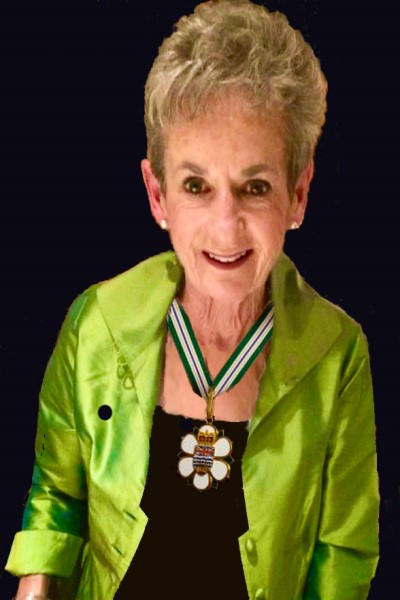
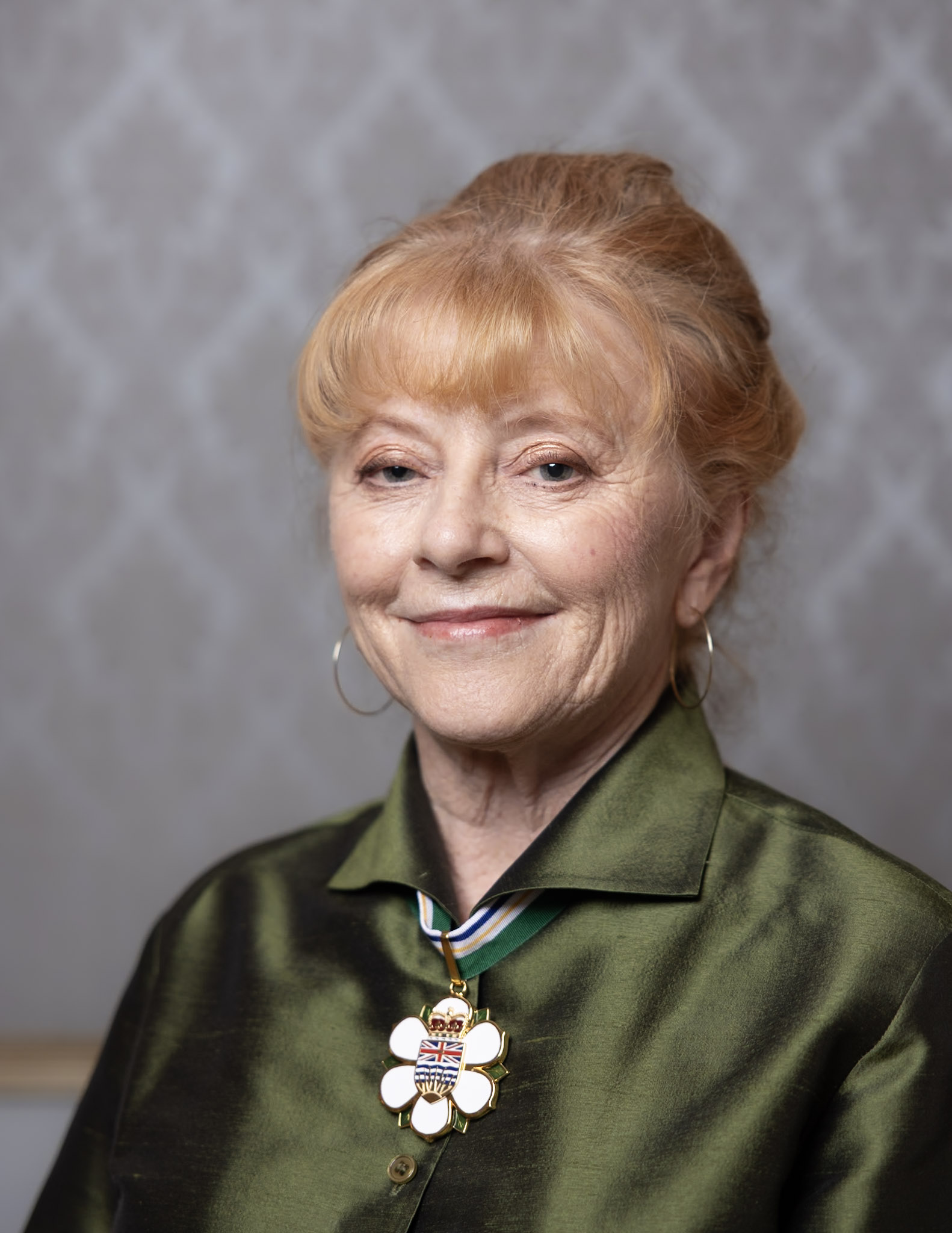
- Year: 2023
- City: Vancouver
- Region: Mainland/Southwest
- Category: Other
Virginia Giles
More than eleven years ago they dreamt of a place where women could escape the ravages of alcoholism. Seeing the crucial need for a womens’ centre for recovery from alcohol and drug addictions, Virginia Giles and Helen Burnham worked to create a safe, healthy environment for women to make their own decisions and leave behind the patterns and life styles of dependency.
In 1989, after countless hours of organizing, fundraising and managing, their dedication helped them overcome society’s denial of alcoholism’s destruction and open the doors to the Avalon Women’s Centre in Vancouver. A second centre in West Vancouver was opened in 1997.
Thanks to the vision and leadership of Virginia Giles and Helen Burnham, the centres have flourished as a safe haven for the newcomer and for lifelong support for second-stage recovery and secondary issues. Treatment centres throughout North America confidently refer recovering alcoholic women to Avalon Women’s Centre for outpatient care. Thousands of women have recovered at Avalon and their recovery has helped many thousands of children and other family members.
Virginia Giles and Helen Burnham each chose the work of building Avalon as their passionate lifelong vocation. They gave years of selfless service to the women of their community, making it possible for them to totally change their lives for the better.
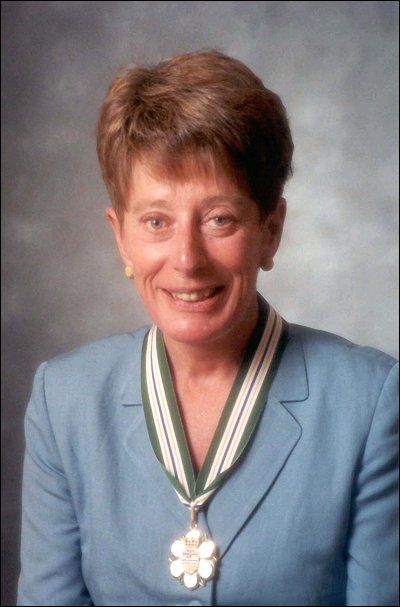
- Year: 2000
- City: Vancouver
- Region: Mainland/Southwest
- Category: Community Leadership
Charan Pal Singh Gill *
Charan Gill of Surrey was a volunteer who worked for social justice for the disadvantaged, the poor and immigrants for 25 years. In 1978 he co-founded the Canadian Farmworkers Union to improve the human rights, health and safety and employment standards of farm workers.
He was an executive member of the B.C. Human Rights Coalition and President of the B.C. Organization to Fight Racism. He founded the Progressive Intercultural Community Services Society and the Rainbow Community Health Co-operative, which works to meet the social and health needs of hundreds of people in his community.
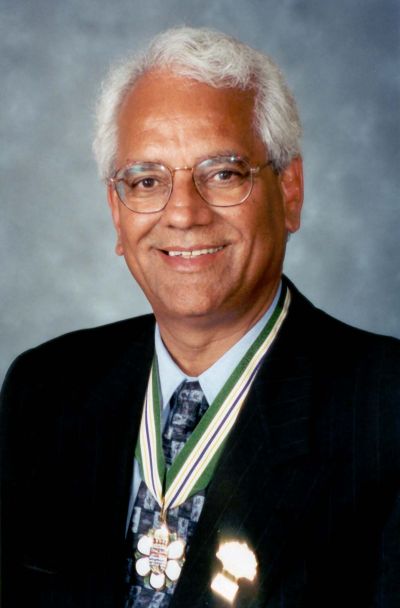
- Year: 1999
- City: Surrey
- Region: Mainland/Southwest
- Category: Community Leadership
Dr. Gurdev S. Gill *
Since immigrating to Canada in 1949, Gurdev Gill was a pillar and a pioneer of the Indo-Canadian community in British Columbia.
He was the first Indo-Canadian to graduate with a medical degree from the University of British Columbia and the first Indo-Canadian to practice medicine in Canada.
Dr. Gill was an active staff member of St. Mary’s, the Royal Columbian and Queen’s Park hospitals. In addition to these professional responsibilities he was President of the Khalsa Diwan Society, a member of the East Indian Canadian Citizenship Welfare Association, a founding member of the National Association of Canadians of Origin in India, a trustee of the India Cultural Society, in all of these, Dr. Gill provided exemplary and effective leadership.
Dr. Gill was a role model for the younger generation of Indo-Canadians. He consistently encouraged their active participation in the mainstream of Canadian society. He was active in fundraising for the Cancer Society, Rotary Club and the Children’s Hospital.
While working toward the betterment of his fellow countrymen and playing a leading role in many projects undertaken by the East Indian community, Dr. Gill underscored the need to promote tolerance and a better understanding among all Canadians.
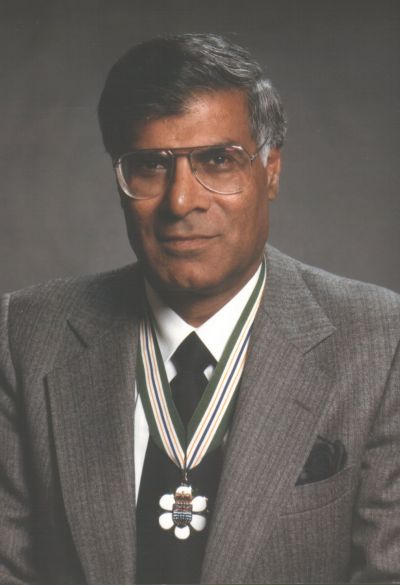
- Year: 1990
- City: New Westminster
- Region: Mainland/Southwest
- Category: Professions and other occupations
Byng Giraud
Byng Giraud is an aggressive advocate for economic reconciliation with Indigenous Peoples.
He believes that economic development can raise all people and thereby can help ensure that Indigenous Peoples experience the same health, education and economic outcomes as other British Columbians. He is not afraid to challenge existing rules or orthodoxies. For example, working with Squamish Nation, together they changed the landscape of Indigenous-led environmental assessment, something not allowed in law until 2018. Giraud said: “Don’t tell me we can't do it. That makes me want to make the change even more.” Today, he is focused on supporting the financial tools Indigenous Peoples need to own and lead major projects within their lands.
The origins of Giraud’s support for Indigenous advocacy date back to his younger years. While working as a labourer in the Peace River area, a prejudiced supervisor intentionally excluded an Indigenous co-worker from being given a ride back to the camp. Giraud chose not to abandon the co-worker and opted to walk alongside him the lengthy distance back to camp. He's been walking the reconciliation path ever since. Today, he works closely with Indigenous communities to assist them in taking full advantage of economic opportunities in their lands. Through his leadership, Byng has facilitated more than $1 billion in economic partnerships for First Nations to leverage their assets.
The ground-breaking economic reconciliation initiatives Giraud has participated in include negotiating and helping the Squamish Nation implement the first-ever Indigenous-led environmental assessment process in Canada. That process, led by Squamish Nation, directly resulted in federal and provincial legislative changes allowing Indigenous-led environmental assessments. He was also active in creating and negotiating the first agreements between First Nations and operating mines in B.C, including agreements with five Nations at two separate projects. Prior to this, no operating metal mine had economic agreements with Indigenous communities. Today, almost every operating or new mine in B.C. has an economic agreement with affected Indigenous communities.
He has led the Indigenous consultation processes that reopened the Huckleberry Mine in northern B.C. after years of conflict with local First Nations. This turned conflict into partnership.
He also led the Northwest Powerline Coalition of Indigenous groups and companies that successfully lobbied the Province to build the Northwest Transmission line along Highway 37, bringing electricity to the remote Tahltan Nation communities. This is one of the first times in B.C. that Indigenous communities joined industry to lobby for collectively needed infrastructure.
While on the board of Ridley Terminals, Giraud worked with the then-chair and partnered with board member Gitxsan Hereditary Chief Elmer Derrick to bring the first economic agreement between local First Nations and the terminal. He served as a founding member of the B.C. Assembly of First Nations-BC Business Council Champions Table, a committee dedicated to practical projects to advance economic reconciliation in B.C.
Giraud worked with a coalition of more than 30 First Nation communities on purchasing a major pipeline. He acted as an adviser to the 130-member-plus First Nations Major Project Coalition - an organization dedicated to enabling Indigenous equity participation in major projects.
Giraud’s contributions have not been limited to economic reconciliation. He actively supports Indigenous cultural and sporting initiatives because actions speak louder than words. This has included raising thousands of dollars for various Indigenous organizations in B.C

- Year: 2023
- City: Winlaw
- Region: Kootenay
- Category: Indigenous Reconciliation
Frank Giustra
Frank Giustra, a leading Canadian entrepreneur in both the natural resource and filmmaking sectors, is also an outstanding philanthropist who makes an impact around the globe.
Frank began his working life in the investment industry. He became Chair and CEO of Yorkton Securities in the 1990s, leading it to become an internationally renowned natural resources investment bank. He also founded Lionsgate Entertainment, now one of the world’s largest independent film companies.
In 1997, Frank established the Radcliffe Foundation, which supports a wide variety of local and international causes. He has actively responded to the global refugee crisis by providing humanitarian aid and supplies to refugee camps in Greece and Turkey, and has visited the crisis region – including Lebanon and Jordan — a number of times over the last year. Closer to home, Frank was instrumental in the creation of StreetoHome, a public private partnership formed to address homelessness in the city, and is actively involved as a mentor to the Boy’s Club Network. Most recently, the Radcliffe Foundation donated $100,000 to support wild-fire evacuees from Fort McMurray.
Frank is an active executive member of the International Crisis Group working on analysis and advice to policymakers for prevention and resolution of deadly conflict. He and former US president Bill Clinton launched the Clinton Giustra Enterprise Partnership which invests in parts of the world where poverty is widespread. Frank is the recipient of many awards including the 2014 Dalai Lama Humanitarian Award.
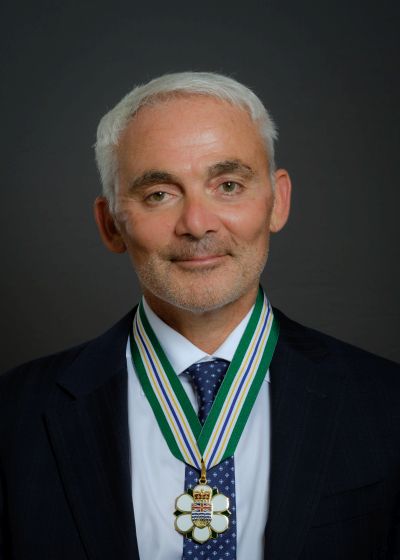
- Year: 2016
- City: Vancouver
- Region: Mainland/Southwest
- Category: Business
Rusty Goepel
Business trailblazer and respected community leader Ruston (Rusty) Goepel has made lasting contributions to British Columbia’s economic growth and social prosperity. With family roots in B.C. extending more than a century, Goepel’s dedication to his home province can be seen across five decades of work: in a successful investment career bringing employment and prosperity to people and businesses locally and nationwide; through his key leadership role in the 2010 Winter Olympics; and in his enduring support for many community causes that improve the lives of British Columbians.
Goepel co-founded Goepel Shields & Partners in 1989, bucking traditional business models to create an independent institutional brokerage where all employees shared in company profits. Starting with a staff of 18, Goepel Shields & Partners grew quickly throughout B.C., Alberta and Ontario under Goepel’s leadership. A 1996 merger with a retail-based broker created Goepel McDermid, a full-service investment brokerage with 500 employees. In 2000, the company completed a $130-million transaction with Raymond James Financial to form Raymond James Canada. Today, it is the largest independent investment dealer in the country, employing 700 people in B.C. and more than 1,600 staff nationwide.
Goepel’s business acumen has also helped other B.C.-based companies flourish. He serves as chair of Vancouver-based Yellow Point Equity Partners, which has raised $320 million and currently holds a controlling interest in seven B.C.-based companies that employ more than 3,700 people. He has also served on numerous corporate and public boards, including the Business Council of B.C. and Vancouver Airport Authority.
A lifelong passion for volunteerism and sport attracted Goepel as a central player in the 2010 Olympic Games. First joining the Olympic bid corporation in 1998 as a director, Goepel was later appointed to the Vancouver Organizing Committee (VANOC) Board. There, he was intimately involved in key planning and decision-making around the Games, from hiring CEO John Furlong to budgetary oversight. Following the passing of founding chair Jack Poole in 2009, Goepel was elected by his fellow directors as new chair to deliver the games to the world. He continued to serve until VANOC’s dissolution in 2013.
Goepel is a tireless community champion. Through his superb professional and personal network, he actively connects community groups with donors eager to support their vision. His volunteerism includes:
-Recruiting benefactors for Templeton School’s acclaimed theatre program and Boys & Girls clubs. He helped program administrators significantly expand opportunities for East Vancouver youth, especially those at risk;
-Co-founding and chairing the KidSport B.C. golf tournament, helping raise more than $350,000 to remove financial barriers for children wishing to play sport;
-Raising more than $500,000 for Community Living B.C. during his 24-year tenure as chair and founder of its charity golf tournament;
-Supporting the Canadian Diabetes Association as a fundraiser, gala chairman and donor, personally funding a diabetes research associate position at B.C. Children’s Hospital Research Institute;
-Fundraising for CNIB, B.C. Cancer, United Way, Big Sisters of B.C. and Lower Mainland, Canadian Olympic Committee, LIFT Philanthropy Partners and Canadian Little League Championship.
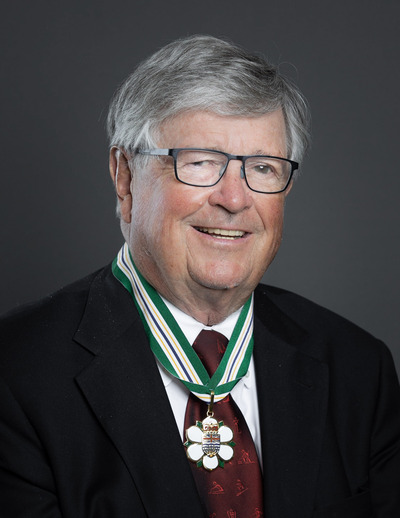
- Year: 2020
- City: Vancouver
- Region: Mainland/Southwest
- Category: Business
Dr. S. Larry Goldenberg
Dr. Larry Goldenberg has dedicated his career as a surgeon to seeking out the best possible care for the citizens of British Columbia. The numerous clinical trials conducted under his leadership have put BC on the map as a leader in urology and prostate cancer research and treatment. Through his vision and leadership, the Prostate Centre at Vancouver General Hospital has developed into one of the top prostate research, education and healthcare delivery programs in the world. It has been recognized by the federal government and the University of British Columbia as a Centre of Excellence for Prostate Research.
Dr. Goldenberg is Professor and Chairman of the Department of Urologic Sciences at UBC, and a Fellow of the Canadian Academy of Health sciences. He has served on numerous hospital, university, national and international boards and committees. He is a co-founder of the Canadian Urologic-Oncology Group, and past-president of both the Canadian Urological Association and the Western section of the American Urological Association.
Dr. Larry Goldenberg was a pioneer in the use of intermittent hormone withdrawal for the management of prostate cancer, which is now used worldwide as a treatment option for this disease. His book, Prostate Cancer – All You Need to Know to Take an Active Part in Your Treatment, is considered one of the best reference sources for men with prostate disease in North America.
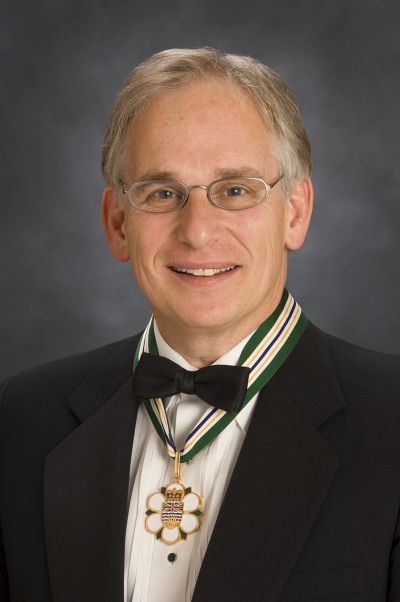
- Year: 2006
- City: Vancouver
- Region: Mainland/Southwest
- Category: Professions and other occupations
Murray Goldman *
For more than 50 years, Murray Goldman was a builder of business and an outstanding community contributor in British Columbia. He built a men’s retail clothing business in Vancouver which eventually became one of the best known retail chains in B.C.
His work in the Jewish community included serving on the boards of the Schara Tzedeck Synagogue and the Louis Brier Home for the Aged. He was a member of the Variety Club of British Columbia since 1967. The enthusiasm with which he entered any project was well known throughout the community and his hallmark of success in all activities.
Murray Goldman was best known for his involvement in Big Brothers of British Columbia. One of the founding members and original directors, he positively influenced the lives of thousands of young boys in British Columbia. He worked tirelessly for this organization by single-handedly bring dollars, volunteers and awareness of Big Brothers by his own unique style and efforts. After 40 years, Murray Goldman was still active with Big Brothers and served as Honorary Chair.
He was a truly caring Canadian who succeeded through hard work and concern for others — serving his community and country unselfishly for many years.
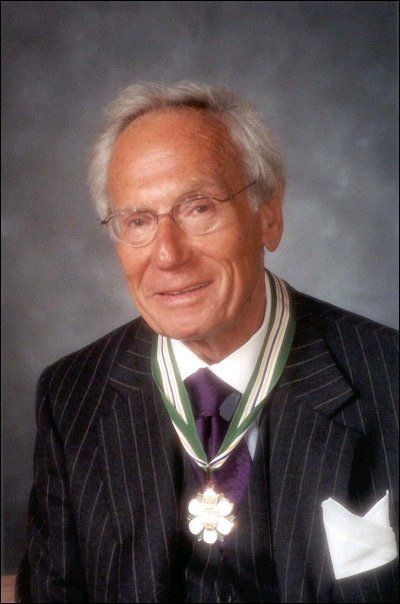
- Year: 2000
- City: West Vancouver
- Region: Mainland/Southwest
- Category: Community Leadership
June E. Goldsmith
June Goldsmith‘s life-long contributions to the arts have greatly enriched the cultural life of British Columbia. She is the Founder and Artistic Director of Vancouver’s Music in the Morning, a concert society that features local, national and international artists who speak from the stage about the music they play. Ms. Goldsmith has created a niche with her unique morning concert format, offering challenging programmes to the growing number of people who prefer their cultural experiences in the daytime. She is passionate in sharing her love of music with others.
Ms. Goldsmith, ever committed to British Columbia artists, has founded and directed several musical series throughout the province, including Whistler’s Music in the Mountains, West Vancouver’s Music in the Library, and Music in the Market at Granville Island. She also organises outreach performances and free concerts, endeavouring to provide musical experiences for all.
Ms. Goldsmith gives much of her time and considerable expertise to national organisations such as the Juno Awards, the Canadian Music Centre and the Canada Council for the Arts. She also participates in music conferences and symposiums throughout Canada and the U.S.
Ms. Goldsmith received the Canada 125 Medal in 1992, and was inducted into the B.C. Entertainment Hall of Fame in 2002. She was appointed a Member of the Order of Canada in 2004.
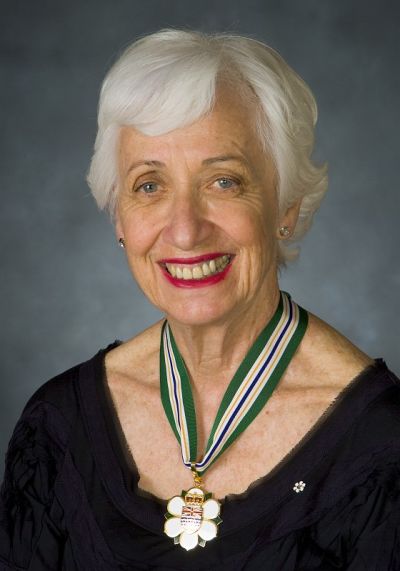
- Year: 2005
- City: Vancouver
- Region: Mainland/Southwest
- Category: Arts and Culture
Dr. Paula Gordon
Dr. Paula Gordon is one of Canada’s leading experts in breast cancer detection and diagnosis and a world expert in the field.
As a leading evidence-based advocate for breast cancer screening and early detection, her work has helped to lead to a marked decline in breast cancer deaths. As one of the first to use ultrasound in the breast, she was a pioneer in the use of ultrasound-guided fine needle biopsies to determine whether a lesion was malignant or benign. Her technique reduced the need for surgery by using a small needle and local anesthesia. She also was among the first to publish about the use of ultrasound for supplementary breast cancer screening.
Dr. Gordon’s research and clinical service in BC started almost 30 years ago. She has been a tireless teacher, respected researcher and a great clinician. She was instrumental in supporting the development of the mammography screening program in British Columbia. She has been key to establishment of a Breast Health Fellowship at BC Women’s Hospital and Health Centre. Practicing radiologists from around the province come to enhance their skills by working directly with Dr. Gordon and other experts.
She has worked with the BC Women’s Foundation and the Canadian Breast Cancer Foundation to raise funds for the Sadie Diamond Breast Imaging Centre. Outside her professional arena, she has served several years as a director of the Canucks for Kids Fund.
Dr. Gordon pioneers the newest applications of technology and her diagnostic expertise brings a new advantage to breast cancer diagnosis in British Columbia.
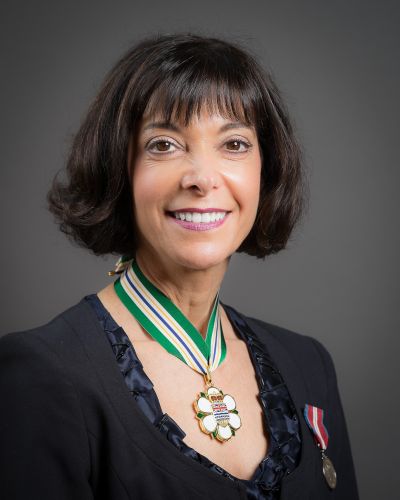
- Year: 2013
- City: Vancouver
- Region: Mainland/Southwest
- Category: Professions and other occupations
Dr. Joseph Gosnell *
Dr. Joseph Gosnell, Sr. of New Aiyansh dedicated himself to the betterment of Nisga’a people and his province. As a council member and later chief in his community, he was instrumental in bringing modern education, medicine and resource management to the Nass Valley. In 1992, Dr. Gosnell was elected President of the Nisga’a Tribal Council and became Chief Negotiator for the landmark Nisga’a Treaty, continuing his ancestors’ one-hundred-year-old struggle to achieve their people’s rightful place in British Columbia history.
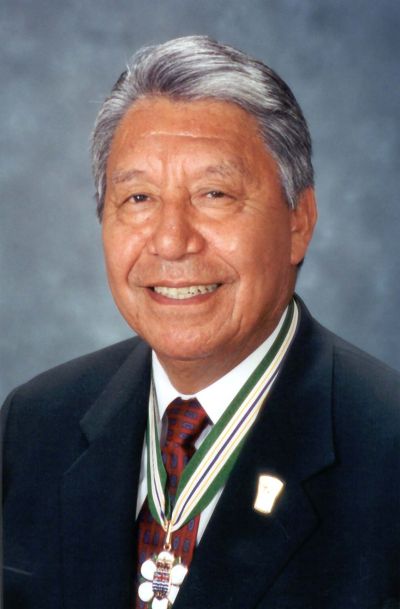
- Year: 1999
- City: New Aiyansh
- Region: Northern B.C.
- Category: Community Leadership
qiyəplenəxʷ Howard E. Grant
Howard Grant, known by his traditional name qiyəplenəxʷ VII, has dedicated over 26 years as the executive director of the First Nations Summit Society and 37 years as a council member of the Musqueam First Nation, showcasing his deep commitment to Indigenous leadership and government advocacy.
With more than 10 years of experience working for Indian and Northern Affairs, in senior management positions and 10 years as the Musqueam Band Manager, Howard's extensive expertise in Musqueam history, economic, and environmental matters has been pivotal in negotiations and establishing key organizations like the MST cooperation, MST Development Corporation - a business partnership between Musqueam, Squamish and Tsleil-Waututh Nation; the First Nations Health Authority and the First Nations Finance Authority. His multi-cultural heritage, with a Chinese father and Musqueam mother, fuels his mission to promote cultural understanding, evidenced by his work producing films highlighting the connections between Chinese and First Nations communities.
Howard's significant contributions include fostering relationships between cultural groups, advocating for Indigenous rights in landmark court cases such as R. v. Guerin and R. v. Sparrow, and leading initiatives for language preservation, sustainable management, and economic development. He played a crucial role in the B.C. government's 2014 formal apology to the Chinese community for past wrongdoings, exemplifying his dedication to justice and reconciliation.
As a mentor, cultural ambassador, and environmental advocate, Howard's unwavering commitment to community development and inter-cultural harmony embodies the values of leadership, dedication and the promotion of an inclusive society.
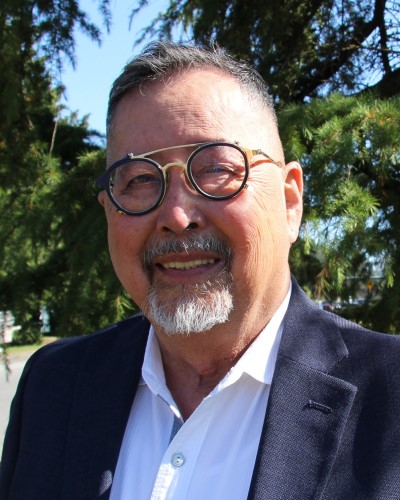
- Year: 2024
- City: Vancouver
- Region: Mainland/Southwest
- Category: Indigenous Reconciliation
Wendy Grant-John
Ms. Wendy Grant-John is an inspired leader who has helped bring transformative change to indigenous communities across the country while simultaneously helping build stronger relationships between Aboriginal and non-Aboriginal people.
Ms. Grant-John has tirelessly contributed through cutting edge leadership, economic development, legal, social and cultural means for more than 30 years. When she served as chief of the Musqueam First Nation, she launched the first Aboriginal commercial fishery in Canada and helped the Musqueam achieve two landmark Supreme Court cases that solidified Aboriginal Rights in the Constitution.
She was the first woman elected regional chief of the Assembly of First Nations and served as commissioner of the Pacific Salmon Commission. She was a founding member and former director of the Aboriginal Healing Foundation.
Ms. Grant-John is a sitting member of the Chief and Council for the Musqueam Indian Band. She is chair of the Minister’s Advisory Council on Aboriginal Women which provides advice to the BC Government on improving the lives of Aboriginal women. She is working toward a coordinated, collaborative and culturally respectful approach to addressing the risks and vulnerabilities that contribute to making Aboriginal women and girls more exposed to and impacted by violence in their lives.
Ms. Grant-John’s many awards include the YMCA-YWCA Women of Distinction Award in 2001, an honorary Doctor of Laws from Royal Roads University in 2003, the Aboriginal Achievement Award in 2006, an honorary Doctor of Laws from Simon Fraser University in 2011, the Influential Women in Business Award in 2012, and the Queen’s Diamond Jubilee Medal.
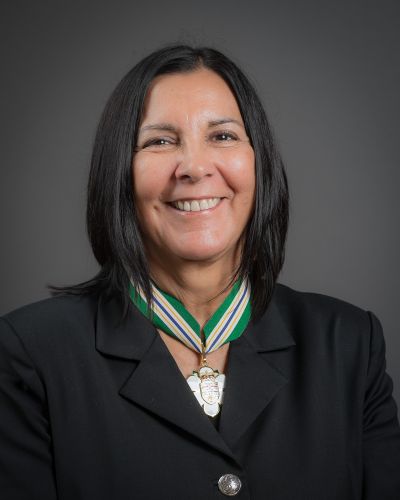
- Year: 2013
- City: Vancouver
- Region: Mainland/Southwest
- Category: Community Leadership
Honourable Nancy Greene Raine
Nancy Greene Raine is a champion. She stands for what is good about growing up Canadian and successfully taking on the world. During her amazing ski career, she won 17 Canadian championship titles, three U.S. championship titles, 13 World Cup races, two overall World Cup championships and Olympic Gold and Silver medals. Nancy has epitomized the Olympic ideal, both in her ski career and in her community service ever since.
Nancy Greene Raine is a shining example of selfless devotion, and has dedicated her life to championing winter sports in Canada, and especially in British Columbia. Named Canada’s Female Athlete of the 20th Century, Nancy selflessly devotes her time to encouraging young athletes entering the world of alpine ski racing, and has worked hard to develop and promote such BC venues as Whistler and Sun Peaks to benefit the province’s economy.
Nancy Greene Raine is a member of both the B.C. and National Sports Halls of Fame, and the Canadian and U.S. Skiing Halls of Fame. She is Honourary Chairman of the Nancy Greene Ski League. She is currently the Director of Skiing at Sun Peaks Resort and a partner in Nancy Greene’s Cahilty Lodge.
In addition to holding countless medals and awards for sport, she was granted Honourary Doctorate of Laws from the University College of the Cariboo, Royal Roads University and Simon Fraser University. She has received many other awards and honours over the years including the Order of Canada and the Order of the Dogwood, Canadian Athlete of the Year and B’nai B’rith Woman of the Year.

- Year: 2004
- City: Sun Peaks
- Region: Thompson/Okanagan
- Category: Sports and Recreation
Hilda Gregory *
Trained at the University of Manchester, Hilda Gregory immigrated to Canada and founded the Vancouver Oral Centre for Deaf Children. The school’s principal for 33 years, she began with eight three-year-olds in a trailer annex to Sunnyhill Hospital. Today, the school’s curricula and methodologies are utilized throughout the continent.
In 1981, the Vancouver Oral Centre for Deaf Children was selected “Program of the Year” by the Alexander Graham Bell Association in Washington, D.C. Serving on numerous international committees and participating in countless conferences, Hilda Gregory made time to support the growth and development of teachers of the deaf. Her leadership led to the formation of the 127 Society for Housing, which created a facility of 87 units for men on welfare. A second project produced 78 more units, and a third project has provided 90 more.
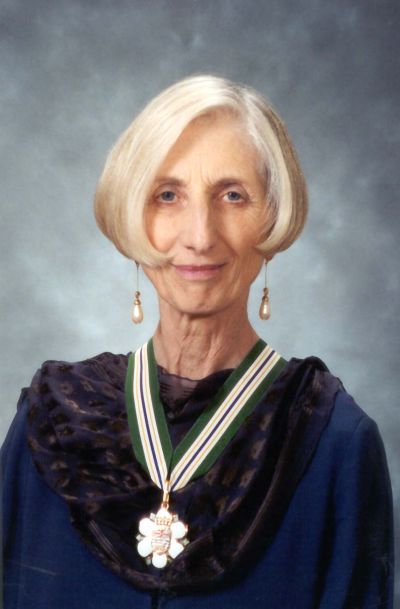
- Year: 1998
- City: Vancouver
- Region: Mainland/Southwest
- Category: Education
Honourable Judith Guichon
The Honourable Judith Guichon was sworn-in as the 29th Lieutenant Governor of British Columbia on November 2, 2012. Prior to this appointment she owned and operated Gerard Guichon Ranch Limited in the Nicola Valley in the British Columbia Interior. The Guichon family has ranched in the area since 1878 and Her Honour’s father-in-law was awarded the Order of Canada in 1974 for his leadership in Cattleman’s Associations and his contribution to agriculture in Canada. Her four children now manage the ranch with a 700 head cow calf and 700 yearling operation.
Her Honour studied Holistic Management, a farming method which promotes sustainable management of livestock by emphasizing their natural habitat. Along with her late husband, commercial pilot Lawrence Guichon, she introduced Holistic Management to the ranchers of British Columbia.
Her Honour was also involved in several organizations. She served on the local hospital board and Community Health Council and was on the Community Health Foundation board. Prior to this, she served as a 4-H Leader and started a recycling society in Merritt, B.C. with a neighbour. She also served as a director for the Fraser Basin Council of B.C., director of the Grasslands Conservation Council of B.C., member of the Nicola Water Use Management planning committee and played the flute in the Nicola Valley Community Band.
Prior to her term as Lieutenant Governor, Her Honour served on the Provincial Task Force on Species at Risk and completed a two-year term as the president of the British Columbia Cattlemen’s Association. She has also been a part of the Ranching Task Force for B.C. and the British Columbia Agri-Food Trade Advisory Council.
Born in Montreal, Quebec, and raised on a farm near Hawkesbury, Ontario, Her Honour moved to British Columbia in 1972. She and her husband, Bruno Mailloux, maintain a residence in the Nicola Valley.
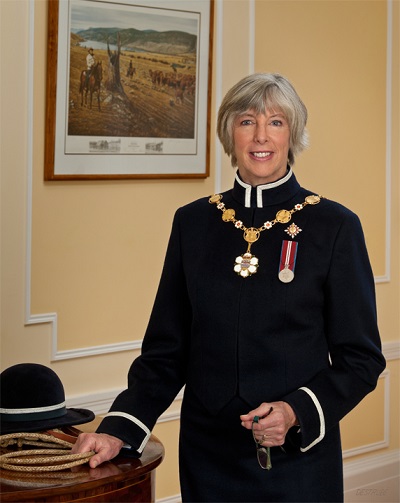
- Year: 2012
- City: Quilchena
- Region: Thompson/Okanagan
- Category: Lieutenant Governor
Dr. Chan Gunn
Chan Gunn is the founder and president of the non-profit Institute for the Study and Treatment of Pain, which has helped thousands of people whose chronic pain defied every other treatment. He lectures and teaches his methods of pain treatment to doctors and physiotherapists throughout the world. He has provided post-graduate scholarships and endowment funds and has received many prestigious international awards for his work.
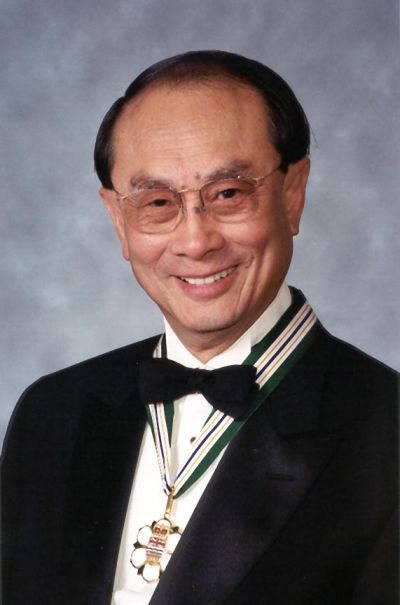
- Year: 2001
- City: Vancouver
- Region: Mainland/Southwest
- Category: Professions and other occupations
Dr. Gloria M. Gutman
Dr. Gloria Gutman is an internationally known and respected educator, author, consultant and advocate, who has devoted her career to improving the quality of life of older people in British Columbia and around the world.
Educated in B.C. and Alberta prior to the establishment of programs in her chosen field, Dr. Gutman pioneered the study of gerontology in British Columbia. Recruited to Simon Fraser University in 1980, she developed the Gerontology Research Centre and the Department of Gerontology at the university, serving as director of both for more than twenty years.
Dr. Gutman’s research interests include seniors’ housing, long-term care, health promotion, dementia care, and environmental design. She has written or edited 20 books or monographs, more than 100 scholarly articles, reports and chapters, and more than 250 papers presented at academic conferences.
Dr. Gutman has worked to make sure her research is applied in the real world, serving as a consultant to the B.C. government and the federal government. She has also served on several federal- provincial initiatives, and has led the BC Network for Aging Research.
Dr. Gutman is a fellow of the Gerontological Society of America, founding president of the Gerontology Association of BC, and past-president of the Canadian Association on Gerontology and the International Association of Gerontology. She is a member of the board of directors of the United Nations’ International Institute on Ageing, and the World Health Organization’s Expert Advisory Panel on Ageing and Health.
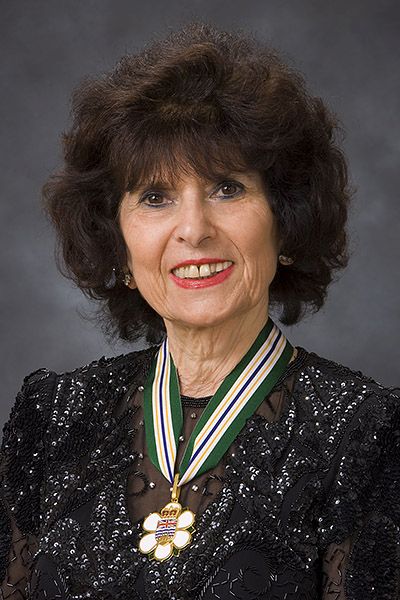
- Year: 2007
- City: Vancouver
- Region: Mainland/Southwest
- Category: Education
Dr. Irving Allen Guttman *
Dr. Irving Guttman graduated from Toronto’s Royal Conservatory of Music in 1952 and was active in the development of opera in Eastern Canada in the 1950s and ’60s. In 1960 he helped launch the Vancouver Opera, which put Vancouver on the map in the international opera community. Guttman mounted productions for singers including Luciano Pavarotti, Beverly Sills, Joan Sutherland and Placido Domingo. In 1992, he became a founding director of a non-profit society, Friends for Life, which helps people living with AIDS and cancer. Today, this organization serves over 1,200 West End residents of Vancouver. He is a member of the Order of Canada and a member of the Canada Arts Council advisory committee.
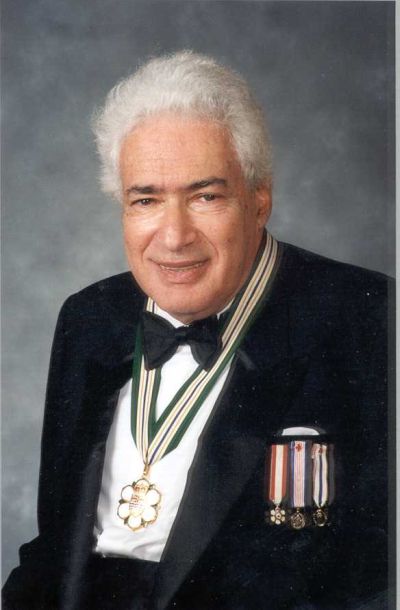
- Year: 2002
- City: Vancouver
- Region: Mainland/Southwest
- Category: Arts and Culture
H
M. Rendina Hamilton
Rendina Hamilton was born and raised in Vancouver. In 1956 she graduated first in her University of British Columbia law class and was awarded the Law Society’s gold medal.
The pursuit of legal excellence continued to be a constant thread winding through her busy life and in 1983 she was appointed Queen’s Counsel, respected by colleagues and known for her mastery of the law.
Beyond this and meritorious on its own, is her leadership and sustained service to her community of Kelowna and her province over four decades. She has contributed her wise counsel, diplomacy, and remarkable common sense to a long and eclectic list of organizations ranging from public and post-secondary education, and health care, to heritage foundations, libraries and athletics.
Rendina Hamilton is currently the B.C. director of the Heart and Stroke Foundation, commissioner of the B.C. Financial Institutions Commission, chancellor of the Diocese of Kootenay, on the national executive council of the Anglican Church of Canada, and on the B.C. Tel Board of Directors.
In addition, she continues to share her talent and energy with community organizations, including the Canadian Federation of University Women, Kelowna Friends of the Library and Kelowna Chamber of Commerce.
Rendina Hamilton’s pursuit of truth and fairness has served her well in her career and in her dedication to others.
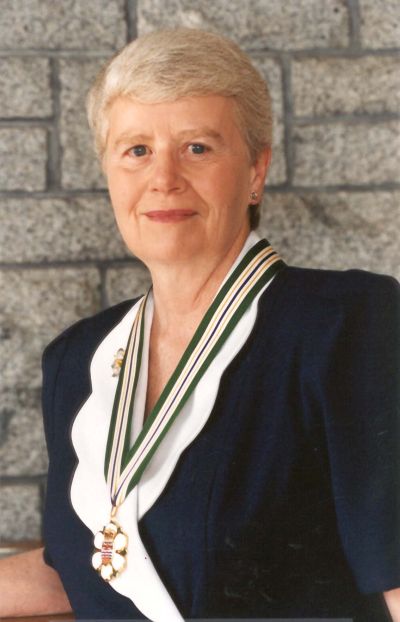
- Year: 1994
- City: Kelowna
- Region: Thompson/Okanagan
- Category: Community Leadership
Dr. Stanley W. Hamilton
Dr. Stanley Hamilton is a respected professor emeritus at Sauder School of Business whose contributions go well beyond the academic world and leave an indelible mark on the arts, urban planning, industry governance and property tax reform.
For over 40 years he inspired thousands of students who now play significant roles in communities, in both the public and private sectors. He was engaged in UBC’s diploma, continuing and community programs; in regulatory and industry governance; pension plans and trusts; and in the expansion of UBC as he co-chaired and managed construction for the new UBC campus at Robson Square.
More broadly, British Columbians have a more equitable and efficient property tax system due to his work on property tax reform over the past decades; better communities through his contributions to planning development commissions; and better economies through his contributions to industry governance and regulation.
After his retirement, Hamilton volunteered his business and project management acumen to help transform the arts landscape, spearheading significant projects. For example, he helped acquired a sponsorship to pay off the mortgage on Vancouver’s Stanley Theatre. He led a team of staff and volunteers to locate and secure the BMO Theatre Centre, home of Bard on the Beach and Arts Club Theatre Company. For over three years he was its volunteer project manager for its construction. He served as a board member and chair of the BC Arts Council, where he ensured its stabilization and the commitment of unprecedented funding for artists.
Hamilton also provided counsel to other arts organizations, a First Nations trust, and local and provincial government agencies and was a significant donor to arts organizations. He and his wife founded the Arts Club Silver Commissions Project, which has developed the work of over 17 local professional playwrights and contributed to the creation of a Western Canadian theatrical cannon.
His peers in the business community have recognized his contributions with honorary memberships in their national, provincial, and community organizations. His service at UBC’s Sauder School was recognized with the establishment of the Stanley Hamilton Award, awarded annually to an outstanding student and the Stanley Hamilton Professorship.
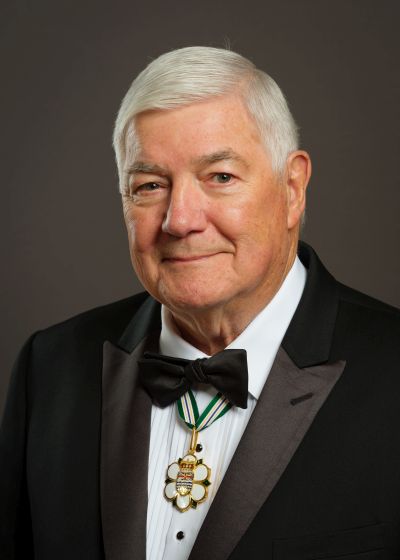
- Year: 2017
- City: Vancouver
- Region: Mainland/Southwest
- Category: Arts and Culture
Dr. Robert E.W. Hancock
Dr. Robert Hancock is an impressive leader in Canadian health research. He has done valuable work relating to the prevention and treatment of infections. His work is directly improving the health of British Columbians and people worldwide.
A pioneer in a number of critical areas of microbiology, Dr. Hancock has made seminal discoveries in the area of antibiotics and their interaction with bacteria cells.
Through innovative research, he has increased our understanding of how antibiotics affect bacteria – in the process developing antibiotics and molecules that enhance natural immunity with the potential to be the first novel classes of broad spectrum anti-microbials to be developed in 30 years.
Dr. Hancock has researched and taught at the University of British Columbia for nearly 30 years, where he is currently Professor of Microbiology and Immunology, and has been awarded a prestigious Canada Research Chair.
His contributions to science and research include the establishment, in 1990, of the Canadian Bacterial Diseases Network, one of Canada’s initial Networks of Centres of Excellence, where he served as Scientific Director for six years. He served as the Chair of the Medical/Scientific Advisory Committee of the Canadian Cystic Fibrosis Foundation.
At UBC, he established the Centre for Microbial Diseases and Immunity Research (CMDR) and co-founded the BC Centre for Drug Research and Development.
In addition to a wide array of other honours, he recently won Canada’s three leading health research prizes: the 2005 McLaughlin Medal of the Royal Society of Canada, the 2006 Michael Smith Prize from the Canadian Institutes for Health Research as Canada’s Health Researcher of the Year, and the 2007 Killam Prize of the Canada Council, and in 2003 won the world’s leading prize for antibiotics research, the Aventis Award. He was awarded the Order of Canada in 2001.
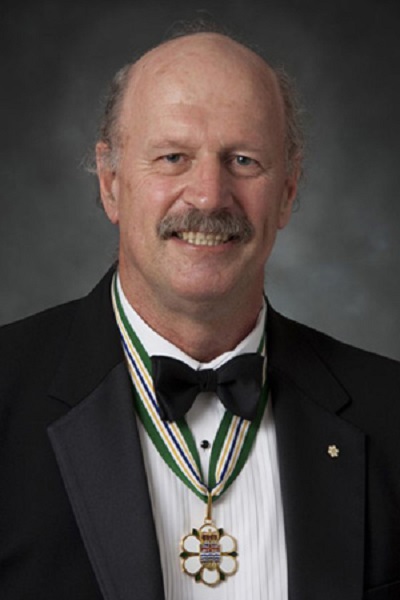
- Year: 2009
- City: Vancouver
- Region: Mainland/Southwest
- Category: Science and Technology
Richard (Rick) M. Hansen
Rick Hansen exemplifies the triumph of determination over personal tragedy. He thereby has set, for all British Columbians, the highest standard of individual accomplishment in the face of adversity.
During his early high school days in Williams Lake, Rick was a superb athlete, receiving all-star awards in five sports. Then tragedy struck, but through a remarkable personal adjustment, Rick turned his tragedy into triumph. Rick began coaching, using his wheelchair in sports, and set his sights on a degree in physical education. He became skilled in wheelchair basketball and the driving force on a team that achieved five national titles in six years. He went on to become both the National Disabled Athlete of the Year in 1979 and to share the Lou Marsh Trophy with Wayne Gretzky as Canada’s Outstanding Athlete of 1983.
Rick had a dream – to change public attitudes and to improve the prospects for those who had suffered spinal cord injury. In the two-year “Man in Motion Tour” he mobilized his dream into action. It took strength of character and determination of the highest order. He achieved the tour’s twin goals in spades.
He is the recipient of many awards, including the Order of Canada.
The dream goes on. He continues to take a leadership role on behalf of the disabled and has spearheaded the creation of the Disability Resource Centre at U.B.C. which will help remove barriers faced by disabled students not just at U.B.C. but across the Province.
His alma mater, the University of British Columbia, has honoured him with a Doctorate of Law and he is now the first incumbent of the Rick Hansen National Fellowship.
Rick has become the national hero of our time and has been a role model not only for the disabled but for all British Columbians who have the will to achieve despite adversity. He has exemplified for us all the true nature of courage and character.
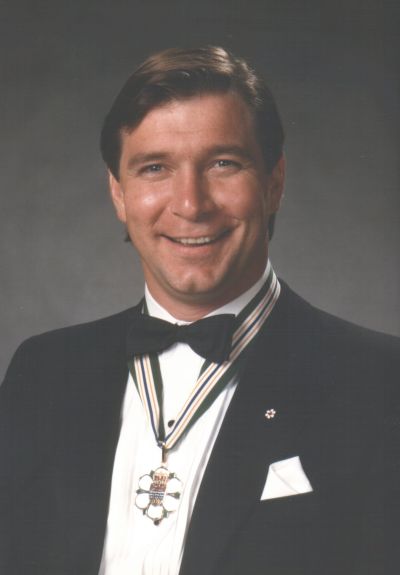
- Year: 1990
- City: Richmond
- Region: Mainland/Southwest
- Category: Sports and Recreation
Arthur S. Hara
Mr. Arthur Hara has led a distinguished career in business, devoting himself to building trade and fostering better understanding between British Columbia and the nations in the Asia Pacific.
Born in Vancouver in 1927, for 37 years he worked for Mitsubishi Canada, being named the first Canadian Chairman of the Corporation in 1983. Under his leadership, Mitsubishi developed BC’s natural resources including coalfields in southeastern BC which then led to building of the deep-sea coal port at Roberts Bank. In 1999 he was named one of the 50 “British Columbia’s Business Leaders of the Century”.
After retiring in 1999, Mr. Hara continued to be very active in the business community. He served as Chairman of the Asia Pacific Foundation, Chairman of the University of BC’s Board of Governors, Chairman of the Vancouver Board of Trade, Director of the Canada-Japan Society of BC, and Division Chairman of the 1998 United Way Campaign. He has provided leadership in areas that have created a more prosperous and more culturally aware society.
From 2005 to 2008 he assumed the voluntary Chair of the Asia Pacific Trade Council with the mandate of enhancing BC’s presence in the Asia Pacific countries of Japan, South Korea, China and India.
Mr. Hara has received international recognition and awards including: Officer of the Order of Canada, the Canada Confederation Medal, the Queen Elizabeth II Golden Jubilee Medal, the Queen Elizabeth II Diamond Jubilee Medal, Order of the Rising Sun (Japan), Distinguished Leadership Award from Simon Fraser University, and an honorary Doctor of Laws from the University of British Columbia.
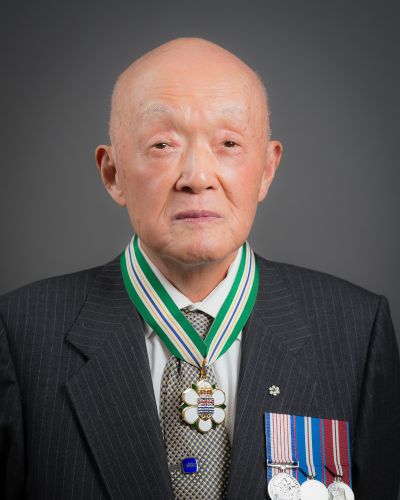
- Year: 2013
- City: Vancouver
- Region: Mainland/Southwest
- Category: Business
Walter Hardwick *
Walter Hardwick was a man of vision, leadership and commitment for over 30 years, expressed in many ways through his involvement in public life at the civic, regional, provincial, national and international level. His longest service to the Province was through his teaching and scholarship.
Based in the Department of Geography at UBC, he was for over 30 years an inspiring teacher. In 1975, he was appointed Director of Continuing Education at UBC, a post he relinquished in 1976 to serve as Deputy Minister of Education, Science and Technology until 1980.
During his long and varied career, he significantly shaped the City and metropolitan region of Vancouver, and had a major impact on the provincial post-secondary education system.
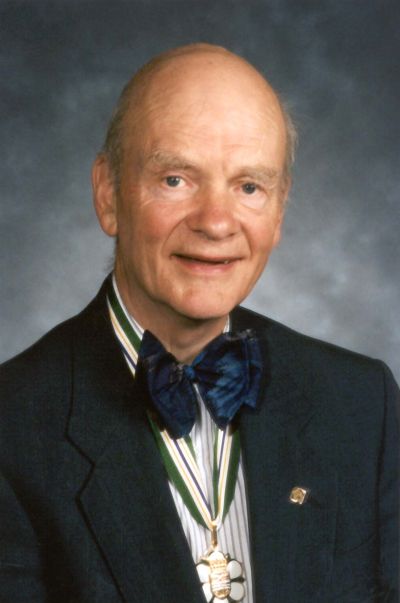
- Year: 1997
- City: Vancouver
- Region: Mainland/Southwest
- Category: Public Service
Jack K. Harman *
Jack Harman enriched the lives of us all for many decades, with sculpture which celebrates Canadians and Canadian institutions. He created some of Vancouver’s best known sculpture including Themis, the Greek Goddess of Justice at the Vancouver Law Courts, the Family Statue in front of the Pacific Press Building, Harry Jerome in Stanley Park, and Bannister and Landy’s “Miracle Mile” at Empire Stadium.
Beyond B.C.’s boundaries, his work includes the Queen Elizabeth II equestrian statue on Parliament Hill and the Peace Keeping Monument at the entrance to the National Gallery also in Ottawa.
Vancouver born Jack Harman studied in Toronto and Europe. He returned to B.C. where he taught for 12 years at the Vancouver School of Art and the Emily Carr College of Art, and then established the first sculpture foundry in B.C.
The Gastown foundry enabled him to provide studio space for up to 22 other artists thus helping them in their own careers. As well as casting his own work, Mr. Harman was the first to encourage northwest coast Native artists to begin casting their carvings in bronze. He put his sculpting career on hold to cast the work of other sculptors including O.B.C. recipients Bill Reid and Robert Davidson and many others. Our recipient lived in the Sechelt Peninsula where he set up a foundry and continued to work as a sculptor and served as a mentor to young artists.
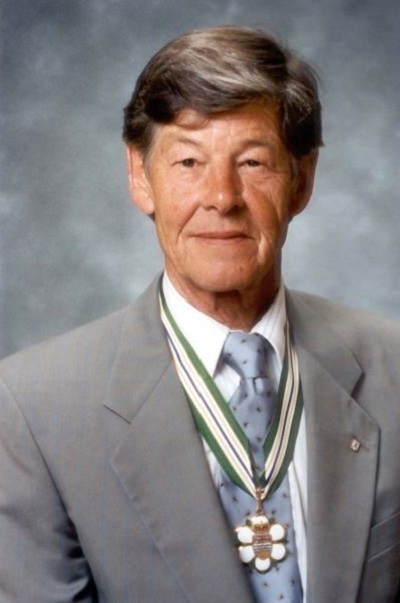
- Year: 1996
- City: Gibsons
- Region: Vancouver Island/Coast
- Category: Arts and Culture
Edward (Ted) Hardy Harrison *
One of Canada’s most well-known and respected artists, Ted Harrison served British Columbia with great distinction and excelled in his field of endeavour.
Mr. Harrison’s images of British Columbia’s natural environment are distinctive in their use of bold colour contrast, and have drawn international attention to our province. Harrison originals – celebrating B.C.’s spectacular landscape – can be found in collections around the world.
His work has inspired many young artists and his reaching out to children has enriched them and the world of art. Mr. Harrison was a well-known author and illustrator of children’s books, which contributes to his positive influence on young people.
He was a strong advocate of teaching art to children, and acted on this commitment by undertaking school visits and establishing a bursary to support the education of art teachers.
Mr. Harrison’s charitable contributions were laudable. He supported a wide range of agencies through contributions of his time and his artwork. He has been awarded several honourary doctorates and other accolades for his contributions.
He benefited the people, most notably the children, of B.C. through his contribution to our province’s culture.
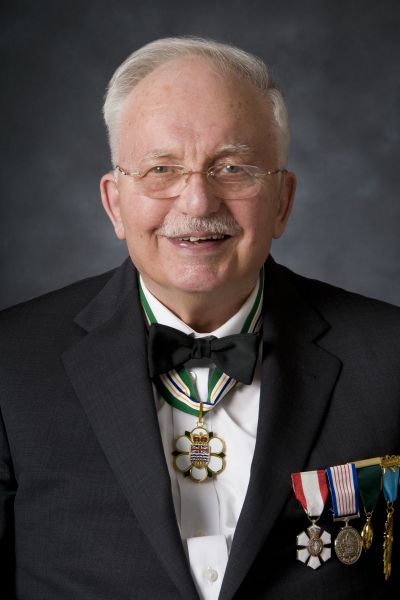
- Year: 2008
- City: Victoria
- Region: Vancouver Island/Coast
- Category: Arts and Culture
Rosamund Louise Harrison
Dr. Rosamund Harrison is an internationally recognized leader in the field of pediatric dentistry and early childhood oral health promotion. She is a champion for improved oral health of children in low-income, new immigrant and Indigenous communities.
Childhood dental disease can affect growth, development, and is particularly detrimental in medically-fragile children. With much of her academic career at UBC, Harrison enhanced education in pediatric dentistry while her community service and research, informed dental and medical communities and healthcare policy decision-makers about the consequences of poor oral health in early childhood.
She advocated for the reduction of oral health disparities among the province’s low-income, new immigrant and Indigenous children through her participation with various organizations, such as the B.C. Dental Association’s Access to Care and Children’s Dentistry Task Force committees. Working with community she helped establish east Vancouver’s Strathcona Dental Clinic.
Her community-based research with Vietnamese and South Asian communities and Indigenous communities in B.C. and Canada has shown that language-specific and culturally-sensitive dental health counselling — delivered by community members — can improve children’s oral health.
In the early 2000’s she was a driving force, with colleagues at BC Children’s Hospital, in the “Brighter Smiles” Project. A Ministry of Health initiative to enhance Indigenous community awareness, it brought oral health education to the families of Hartley Bay, a remote Gitga’at community on B.C.’s north coast after the community identified children’s dental health as its priority need.
She has been involved in service to many organizations including the Commission for Dental Accreditation (Canada), the Canadian Institute of Health Research, the British Columbia Society of Pediatric Dentists, the American Academy of Pediatric Dentistry, the Canadian Dental Association, and the British Columbia Dental Association. She spearheaded efforts to establish the third graduate program in pediatric dentistry in Canada, demonstrating her commitment to training and mentoring the next generation of dentists specializing in the dental care of children and those with special health care needs.
In recognition of her health promotion research and activities, Harrison and colleagues received the Canadian Dental Association’s Oral Health Promotion Award and she was granted honorary membership in the B.C. Dental Association, the association’s highest and most significant honour. For excellence as an educator, she was awarded a UBC Teaching Excellence Award and also the 3M-ESPE-ACFD National Dental Teaching Award.
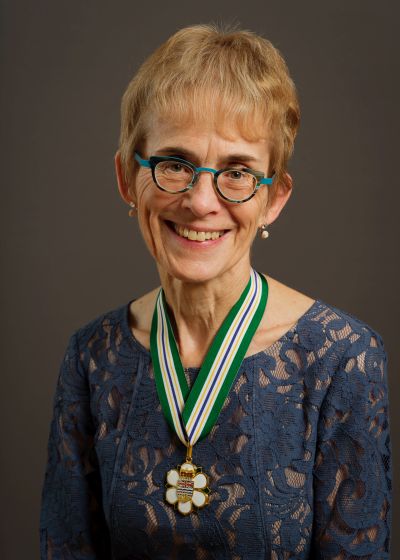
- Year: 2017
- City: Vancouver
- Region: Mainland/Southwest
- Category: Professions and other occupations
Rick Harry (Xwalacktun)
Mr. Rick Harry (Xwalacktun) has produced a prodigious body of artwork and an enduring legacy of goodwill. A highly skilled artist and teacher, Mr. Harry has made healing, growth, respect and giving back to the community central themes in his life.
Born and raised in Squamish, Mr. Harry was educated at Emily Carr College of Art and Capilano College before embarking on a 30-year career as an internationally recognized artist and cultural ambassador. He works in wood, glass and steel and is best known for his remarkable wood carvings.
Mr. Harry’s carvings can be seen in high-profile locations in the Lower Mainland. These are among more than 80 pieces he has carved for schools and other institutions throughout B.C. and around the world. Mr. Harry was the first Aboriginal artist chosen to receive a licence to produce 2010 Olympics-related designs.
With influence extending well beyond B.C.’s borders, Mr. Harry has been commissioned by galleries in New York and New Hampshire to produce carvings. He has been featured on high-profile television programs, including Sesame Street, and has – for a decade – conducted totem carving classes in Scotland, helping people there preserve their own heritage.
Over the years, Mr. Harry has become a highly acclaimed artist, a link between the Squamish Nation and other communities, and a great representative of British Columbia.
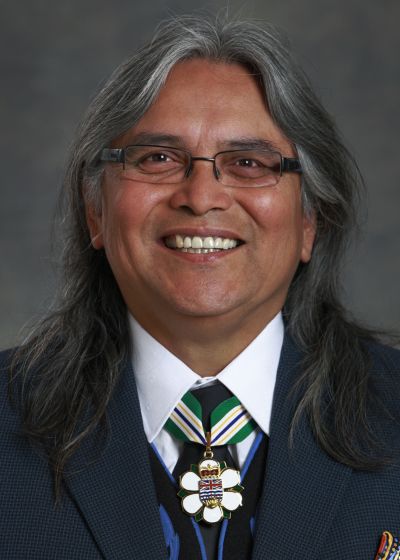
- Year: 2012
- City: West Vancouver
- Region: Mainland/Southwest
- Category: Arts and Culture
James (Jim) Hart
Jim Hart is a Haida artist and master carver from the Queen Charlotte Islands whose works are in private and public collections worldwide. He started apprenticing over 20 years ago with Haida carvers Robert Davidson and Bill Reid. Hart’s commissions include the royal family in Sweden, clients in Canada and the United States, the Museum of Anthropology at UBC, as well as restoring an old Haida pole for the Smithsonian in New York City. He has had solo exhibitions in Vancouver and Singapore and set up a booth in the Louvre in Paris with other international artisans. In 1999, he became hereditary chief of the Eagle Clan of Haida Gwaii.
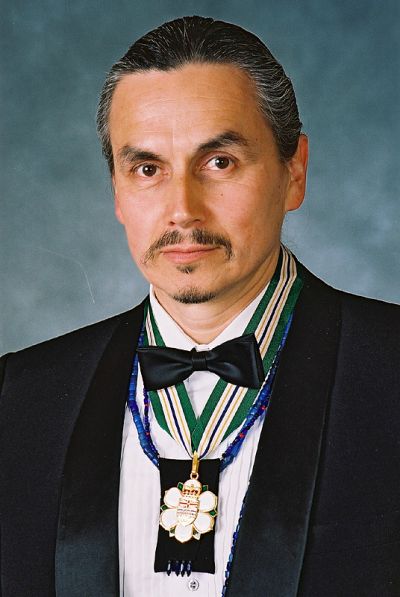
- Year: 2003
- City: Vancouver
- Region: Mainland/Southwest
- Category: Arts and Culture
Dr. Michael Hayden
A world-renowned geneticist, Dr. Michael Hayden has used his scientific discoveries and talents to benefit humanity.
He has made outstanding contributions in the areas of genetics, Huntington’s and other neurodegenerative diseases, lipid disorders, and type 2 diabetes.
As Director of the Centre for Molecular Medicine and Therapeutics at the University of British Columbia and the Child and Family Research Institute, Dr. Hayden has built a leading centre for genetics research in Canada. Together with his colleagues, he has identified seven causal genes for devastating diseases.
He is the most cited author in the world of Huntington disease. He also plays a key role in communication around genetics and the public. He is frequently called upon to provide important advice to various levels of government.
Dr. Hayden is a Killam Professor of Medical Genetics at UBC and Canada Research Chair in Human Genetics and Molecular Medicine.
In 2008 Dr. Hayden was named Canada’s Health Researcher of the Year by the Canada Institutes for Health Research.
Outside of the laboratory, Dr. Hayden founded the first summer camp for Huntington disease patients in North America which has been operating since 1984 and is spearheading building a youth centre for young women with AIDS in Cape Town, South Africa.
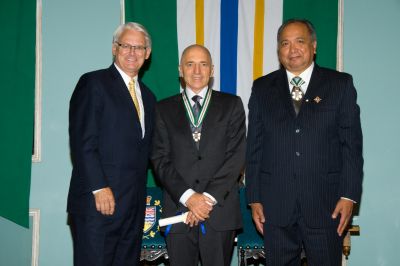
- Year: 2009
- City: Vancouver
- Region: Mainland/Southwest
- Category: Science and Technology
Tara Singh Hayer *
As a symbol of the struggle for human rights, peace and freedom of expression, Tara Singh Hayer paid an enormous personal price for his beliefs. Aware that discrimination thrives on ignorance, Mr. Hayer worked tirelessly to promote understanding between ethnic and cultural groups.
After emigrating to Canada in 1970, he worked as a miner, teacher, truck-driver and a manager of a trucking firm before becoming a full time journalist. In 1978, he established the community newspaper, The Indo-Canadian Times and built it into the leading Punjabi-language newspaper in North America.
In August, 1988, he survived an attempt on his life that left him in a wheelchair. Despite this attack, Mr. Hayer never wavered in his commitment to tolerance, peace and understanding between cultural communities.
In 1992, he was honoured with the Commemorative Medal for the 125th Anniversary of Canada and a Certificate of Appreciation from the R.C.M.P. Among his other awards, Mr. Hayer received the Journalist Award by the Municipality of Surrey for courageous and outstanding contribution to Punjabi Journalism in Canada. He also received the International Award of Distinction for Journalism by the International Association of Punjabi Authors and Artists.
Tara Singh Hayer continued, even when faced with violence, to be a voice of moderation and reason.
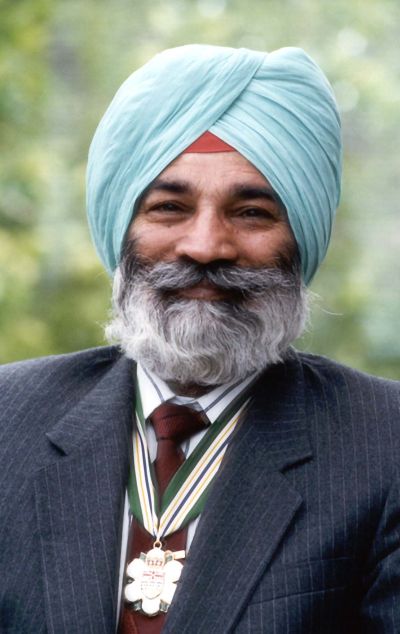
- Year: 1995
- City: Surrey
- Region: Mainland/Southwest
- Category: Communications
Kathleen Heddle *
Kathleen Heddle was one of British Columbia’s most distinguished athletes. She started rowing for UBC in the fall of 1985 at the age of 19; quickly joined national team ranks by making the Pan Am Team in 1987; and went on to win a gold medal in the straight pair.
Ms. Heddle made steady progress and became a member of the Senior A Team in 1989. She was one of the strongest female athletes on the rowing team and made a major impact on any crew in which she competed.
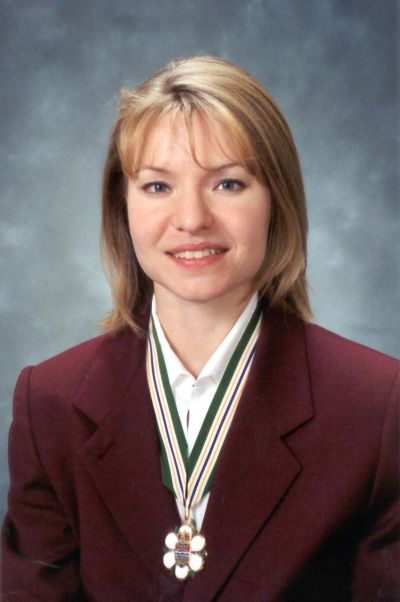
- Year: 1997
- City: Vancouver
- Region: Mainland/Southwest
- Category: Sports and Recreation
Jane Heffelfinger *
Her passion for the performing arts and outstanding record of volunteer leadership inspired and motivated many people to join Jane Heffelfinger in supporting health care, the arts and broadcasting in Victoria.
Her fundraising talents were put to work on behalf of the Greater Victoria Hospital Foundation where she united a team of extraordinary volunteer leaders and raised over $12 million in 12 months to replace urgently needed patient-care equipment at four Victoria hospitals.
Her talent to inspire and motivate others was also applied to the Arts community. As volunteer president of Pacific Opera Victoria, her dedication to showcasing Canadian talent changed opera. Her leadership and volunteer fundraising brought new standards to Canadian opera and meant Pacific Opera Victoria recorded twenty years of financial stability, something few Arts organizations achieve.
As a governor of the Victoria Commonwealth Games, she was dedicated to ensuring the athletes had the best possible competition and the community received an appropriate legacy. In addition to serving as Chair of the Hospital Foundations’ Patrons’ Council and the Pacific Opera Victoria Foundation, she also served as a Director on the Board of the Canadian Broadcasting Corporation and as a Governor of Lester B. Person College of the Pacific.
The winner of many awards including Honourary Citizen of Victoria in 1998, Jane Heffelfinger’s volunteerism, advocacy and unwavering commitment helped make Greater Victoria a thriving and vibrant community.
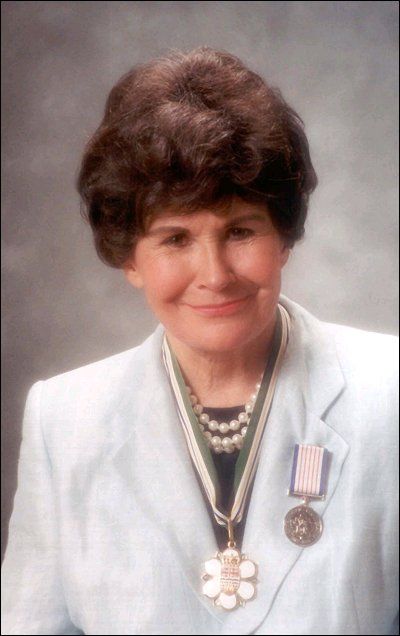
- Year: 2000
- City: Victoria
- Region: Vancouver Island/Coast
- Category: Arts and Culture
Dr. Bonnie J. Fraser Henry
Dr. Bonnie Henry was appointed as provincial health officer for B.C. on Feb. 1, 2018 and has led the province through the mayhem of COVID-19 with outstanding community leadership benefiting all people of B.C. Her
exemplary commitment to the health and well-being of everyone in the province, and her tireless dedication to communicable disease prevention leaves a lasting legacy.
Henry was the deputy provincial health officer for three years starting in August 2014. Prior to that, she served as the interim provincial executive medical director of the BC Centre for Disease Control (BCCDC) from December 2013 until August 2014.
She was also BCCDC’s medical director of communicable disease prevention and control and public health emergency management. She served as medical director for the provincial emerging and vector-borne diseases program, as well as a provincial program for surveillance and control of health-care associated infections; a position she started in February 2005. When B.C. was infected with COVID-19 Dr. Henry was ready and led the country in prevention awareness to isolate the virus.
Prior to this, she was responsible for the Toronto Public Health emergency services unit and the communicable disease liaison unit and was the operational lead in the response to the SARS outbreak in Toronto. Never one to hide from adversity, she was a member of the executive team of the Ontario SARS scientific advisory committee.
Henry is a specialist in public health and preventive medicine and is board certified in preventive medicine in the U.S. She graduated from Dalhousie Medical School and completed a master’s in public health in San Diego. She also completed her residency training in preventive medicine at the University of California, San Diego, and in community medicine at the University of Toronto.
She is an associate professor at the UBC faculty of medicine and has taught at Simon Fraser University, the University of Victoria and in Ecuador at a university partnership. She is the past chair of Immunize Canada and a past member of the Canadian National Advisory Committee on Immunization and the National Infection Control Guidelines Steering Committee. She chaired the Canadian Public Health Measures Task Group and was a member of the Infection Control Expert Group and the Canadian Pandemic Coordinating Committee responding to pandemic H1N1 (2009) influenza. She is the Chair of the Canadian Pandemic Influenza Preparedness task group which developed the plan on which Canada’s COVID-19 response was based. She is also the Chair of the Canadian Council of Chief Medical Officers of Health, which formed the basis for
the Special Advisory Committee responding to the COVID-19 pandemic in Canada.
Henry has developed extensive knowledge and experience in three primary areas of public health over the past two decades: surveillance; public health emergency management; and infection prevention and control. She is recognized nationally and internationally in these areas and was specifically requested to represent Canada and support the World Health Organization (WHO), Pan American Health Organization in initiatives in these areas working on the Ebola crisis in Uganda and polio eradication in Pakistan. She has also been requested to provide advice to several provincial governments. In recognition of this expertise, she has been invited to sit on
the National Advisory Committee on Immunization and the National Infection Control Guidelines Steering Committee in Canada and a WHO Expert Group on Mass Gatherings and WHO Advisory Committee on Health Security Interface. The guidelines developed by these groups affect public health and health care programs across the country and internationally.
She has been involved with planning, surveillance and response to mass gatherings in Canada and internationally, including with the 2010 Vancouver Olympic and Paralympic Games. She is the author of Soap and Water and Common Sense, a guide to staying healthy in a microbe filled world and co-author with her sister Lynn Henry of Be Kind, Be Calm, Be Safe – four weeks that shaped a pandemic. She remains calm and compassionate in chaos, practical when others are paranoid, and serves with outstanding distinction in whatever health portfolio she takes on.
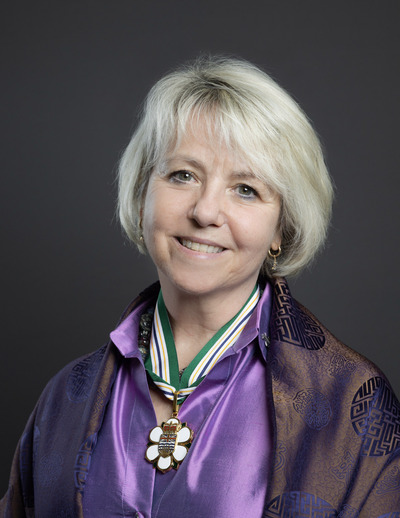
- Year: 2021
- City: Victoria
- Region: Vancouver Island/Coast
- Category: Public Service
Tracey Herbert
Tracey Herbert originates from the St’uxwtews First Nation (Bonaparte Band), located in the territory of the Secwepemc Tribe in the Thompson Okanagan region of B.C.’s interior. She has changed and influenced approaches to First Nations language preservation and revitalization in B.C. and Canada, and her leadership in the areas of health, cultural and linguistic well-being of First Nations is benefitting all of British Columbia by creating opportunities for all citizens to appreciate Indigenous culture.
As CEO of the First Peoples’ Cultural Council (FPCC), and in partnership with Royal British Columbia Museum, she led the development of an award-winning exhibit on Indigenous languages of B.C. showing the critical level of endangerment of B.C. First Nations languages and showcasing the amazing work of B.C. First Nations language champions.
Since 2003, she has managed the development and implementation of FirstVoices.com, a unique online language documentation tool that is used by Indigenous people in B.C. and Canada. FirstVoices version 2.0, launched this year, now serves over 70 Indigenous languages in B.C., Alberta, the Yukon, Alberta, Quebec, Nova Scotia, California and New South Wales, Australia. She is working with Google, Microsoft, National Library and Archives, National Research Council, Assembly of First Nations, and Royal BC Museum. Her greatest legacy has been her unwavering advocacy and commitment to ensuring the revitalization of Indigenous cultures of B.C. Through her work the Indigenous people’s voice is finally heard in telling their stories in song, art, music, exhibitions, performance and how history is told and languages recovered, revitalized and maintained.
As chair of the Endangered Language Project, a hub for those championing language revitalization to share resources, Herbert brought academics and community representatives together to catalogue all endangered languages in the world and to share best practices through a global network of experts. She is also the B.C. Assembly of First Nations’ representative as a technician for the Chiefs Committee on Languages and the Chair of the National Assembly of First Nations Costing Committee for the development of the national legislation on Indigenous languages.
A sought-after speaker, she has spoken at the Micmac Language Conference, B.C. Museums Association Conference, and the Heritage B.C. conference. In 2019, she will lead an initiative to bring together Indigenous peoples from around the globe to celebrate the United Nations Year of Indigenous languages.
Her advocacy has resulted in the provincial and federal government making significant increases to their investment in languages. In 2018, the B.C. government increased its contribution to $50 million and the federal government increased its contribution to $3.6 million, all of which will increase opportunities through community grants for people to learn their languages and for the languages to be saved from extinction through documentation and learning through immersion.
She also led a partnership with the Vancouver Opera to develop an indigenized version of the Magic Flute that featured the Coast Salish language, an Indigenous set and costume design, and choreography while creating nine job opportunities for Indigenous artists and singers.
Tracey Herbert was taught by her grandparents to believe that people have a responsibility to support each other to achieve their goals. Her 30 years of work in health education, planning and language revitalization has been a lifetime of creating opportunities for indigenous peoples to flourish and be valued as the first peoples of this land.
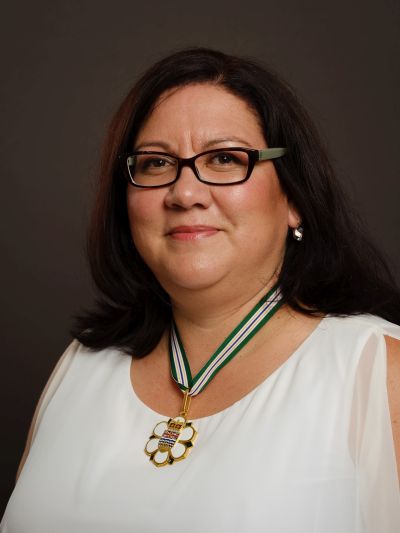
- Year: 2018
- City: Victoria
- Region: Vancouver Island/Coast
- Category: Community Leadership
Margaret (Meg) G. Hickling
Meg Hickling, R.N. has touched the lives of thousands in her work as a Sexual Health Educator. Her early work became the prototype for the Provincial Family Life Curriculum. Her commitment to issues like violence against women and pornography is evident in her leadership of conferences (Ending Family Violence) and her presentation to children on sexual health and sexual abuse prevention. She has voluntarily trained and inspired dozens in the field.
Meg Hickling has been recognized locally (YWCA Woman of Distinction), provincially (BC Council for the Family – Distinguished Service to Families) and by her peers (RNABC Award for Excellence).
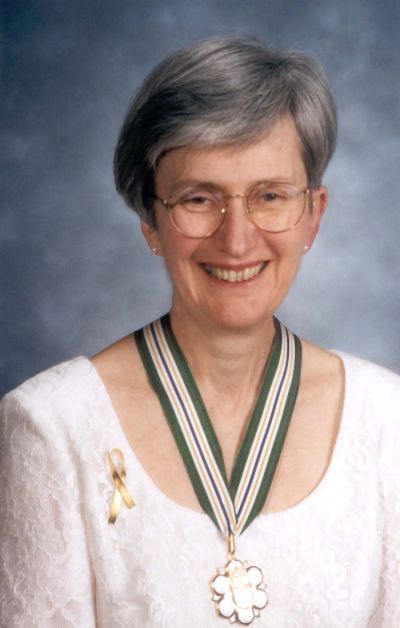
- Year: 1997
- City: Vancouver
- Region: Mainland/Southwest
- Category: Education
Robert (Bob) George Hindmarch
Bob Hindmarch has made a profound and fundamental difference in the lives of thousands of students, athletes, coaches and citizens through his leadership in sports and physical education at UBC, and through national and international sports organizations.
Mr. Hindmarch is credited with helping start and establish the Man in Motion World Tour and was an advisor to Rick Hansen during his incredible journey around the world.
Mr. Hindmarch coached UBC’s hockey team to an unparalleled string of victories, and established university sports exchanges, including the first Canada-China exchange.
He established the UBC Sports Hall of Fame, was president of the B.C. Sports Federation, chairman of the Hockey Leadership Institute, director of the Canadian Amateur Hockey Association, chairman of the sports committee for EXPO 86, a trustee of the B.C. Sports Hall of Fame. He also helped bring the Grizzlies to Vancouver.
In 1964 he was manager and assistant coach of Canada’s Olympic Hockey team – the start of four decades of commitment. He was Chef de Mission for the Canadian Olympic team in Sarajevo and vice-president of the Vancouver-Garibaldi bid for the 1976 Winter Olympics. He was an ambassador for the 2010 Olympic and Paralympic Winter Games bid.
Mr. Hindmarch earned an honorary lifetime membership in the Canadian Olympic Association and was inducted into both the Canadian Olympic Hall of Fame and the B.C. Sports Hall of Fame.
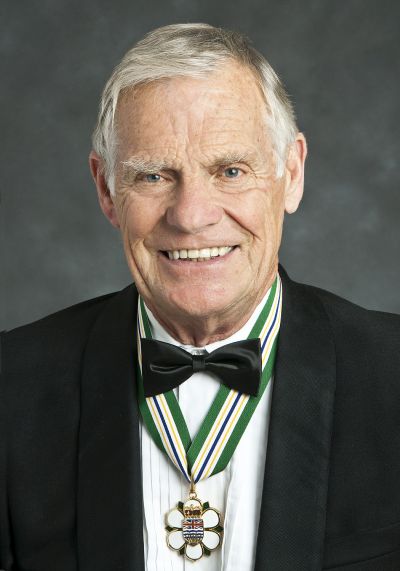
- Year: 2010
- City: Vancouver
- Region: Mainland/Southwest
- Category: Sports and Recreation
Robert H.N. Ho
Mr. Robert Ho is a philanthropist who has donated millions of dollars to health care institutions and universities.
In 2009, his gift of $15 million to the Robert H.N. Ho Research Centre at Vancouver General Hospital enabled the establishment of a state of the art home to three internationally renowned research programs – the Vancouver Prostate Centre, the Centre for Hip Health and Mobility, and the Ovarian Cancer Research Institute. The new centre facilitates cross-pollination of ideas between the disciplines, and greater discoveries and developments to further propel BC’s reputation in the global scientific community.
Two years later, Mr. Ho’s $10 million gift to Lion’s Gate Hospital supported the Greta and Robert H.N. Ho Centre for Psychiatry and Education. His public support expressed a positive and powerful message about mental health which is unfortunately surrounded by stigma.
Mr. Ho’s transformational gifts to health care in British Columbia, totaling $25 million, leave a tremendous philanthropic legacy. He has also made an investment into the scientific knowledge and medical expertise of our province.
Beyond health and medicine, he is also an advocate of Buddhist philosophy and its role and relevance in a contemporary setting. His $4 million donation to UBC in 2005 established North America’s first centre of Buddhist studies. This, and another $4 million donation to University of Toronto, was part of several donations to universities in Canada and the United States to promote academic dialogue and understanding of Buddhism. He has received many awards including an honorary Doctor of Laws from UBC.
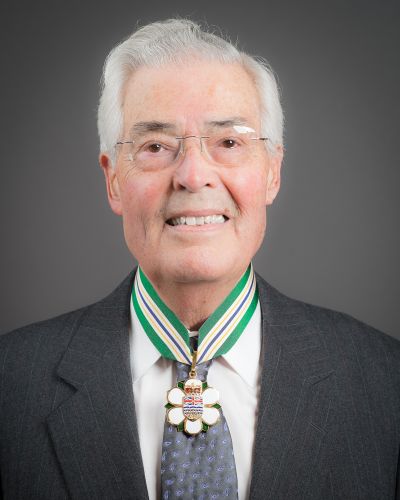
- Year: 2013
- City: West Vancouver
- Region: Mainland/Southwest
- Category: Other
Dr. James C. Hogg
Dr. James Hogg’s brilliant career and uniquely-blended background in pathology, pulmonary physiology and molecular biology has leveraged over 40 years of seminal contributions to the world’s understanding of lung disease.
An outstanding researcher, teacher, lecturer and colleague, he has trained and mentored some of the best physicians and investigators from around the world. Dr. Hogg has arguably had a greater influence on the medical community’s knowledge of Chronic Obstructive Pulmonary Disease (COPD) and asthma than any other individual worldwide.
His research program has greatly increased our understanding of the molecular mechanisms that drive the inflammatory process in the airway tissue of patients with COPD, the pathology of the small conducting airways in COPD and the role of air pollution in the local and systemic inflammatory response. More than 700,000 Canadians have diagnosed with this disease. Dr. Hogg’s work stresses the importance of finding a diagnostic test before symptoms appear which would lead to the prevention of COPD.
The value of Dr. Hogg’s research has been recognized by major funding agencies and has garnered funding from around the world, bringing these resources to BC. He is one of the best known pathologists in the world.
Dr. James Hogg has provided years of service to the community through roles in scholarly societies. He is an officer of the Order of Canada and received the Queen Elizabeth Diamond Jubilee medal.
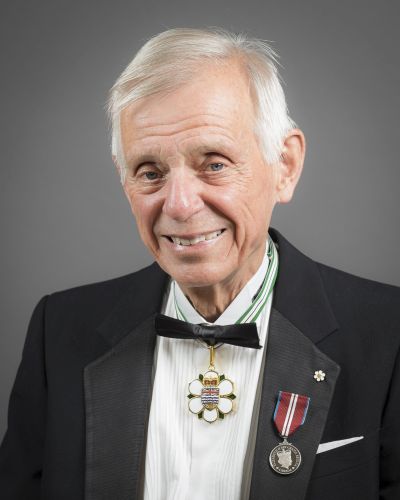
- Year: 2014
- City: Vancouver
- Region: Mainland/Southwest
- Category: Science and Technology
John Malcolm Horton
Marine artist John Malcolm Horton has made significant contributions to the appreciation and safety of B.C.’s coastal history and its waters through his paintings showcased in collections across Canada, commemorative coin designs for the Canadian Mint, and a lifetime of volunteer service to keep mariners safe.
In his outstanding paintings — over 1,400 in number — Horton depicts the history of the coast of British Columbia, bringing to life the historic voyages of captains Cook and Vancouver. His work has attracted the attention of officials at the Department of National Defence who selected him to produce paintings of Canadian warships serving in the Arabian Gulf and on international exercises.
Equally significant is his long-time volunteer work in marine search and rescue.
Over the years, Horton has been active in the Canadian Coast Guard Auxiliary, Canadian Lifeboat Institution, Royal Naval Sailing Association (British Columbia), Royal Canadian Sea Cadet, and the Naval Officers Association of British Columbia. He was instrumental in the development of the Lifeboat Institution and he used his own vessels to respond to 600 incidents.
Since joining the Canadian Marine Rescue Auxiliary in 1979, his focus has been on assisting the native and commercial fisheries in B.C. along with any other mariners in distress. Volunteering under the auxiliary flag, he has assisted in the rescue of hundreds of vessels either in distress or disabled.
In 1988 Horton began volunteering with the Canadian Lifeboat Institutes’ Search and Rescue service (SAR) – a not-for-profit registered charity that provides non-government supported search and rescue assistance in the Lower Fraser River and Gulf of Georgia waters. From its base in Steveston, Horton has trained volunteers to be competent crew members. As well he has devoted thousands of hours and his own money to maintain its 52’ Delta Lifeboat, formerly the Steveston Lifeboat. Its safety role to the fishing fleet in the Gulf of Georgia and Fraser Estuary cannot be over-estimated; to date almost 900 incidents have been attended by Horton aboard the Lifeboat.
In recognition of his marine art he is the only Canadian artist mentioned in the late Dennis Brook-Hart’s definitive book, “Twentieth Century Marine Painting.” He is a founding member of the Canadian Society of Marine Artists and member of the Federation of Canadian Artists, the Naval Officers Association of B.C. and the Honourable Company of Master Mariners. Through his art, he has supported many schools, museums, hospitals and community-based charities.

- Year: 2020
- City: Delta
- Region: Mainland/Southwest
- Category: Arts and Culture
Paul Frederick Howard
By leading the first team in the world to use fuel cells to power a zero-emission vehicle, Paul Howard has brought distinction to himself and to his province.
The people at Ballard Power Systems knew they had the technology to revolutionize the energy world. They had made significant advances in fuel cell power density, efficiency and cost but no one was listening to this small, unknown company. To catch the attention of the public and of investors, they decided to leapfrog from a small demonstration model to a 125 horsepower fuel cell to power a nine-meter long transit bus.
Hundreds of people worked on the project, but Paul Howard was the key figure whose determination, detailed engineering excellence and perseverance made the operating nine-meter bus a reality. The project was completed on time and on budget in spite of skepticism from many experts. The design has been tested by B.C. Transit and the Chicago Transit Authority on city transit routes.
In 1996 Paul Howard received the meritorious achievement award from the Association of Professional Engineers of B.C. for his leadership and significant contributions to the development of an environmentally clean power generation alternative for the transportation industry. This remarkable engineering feat with the potential to clean up inner-city air pollution has allowed Ballard Power Systems to become the dominant company it is today.

- Year: 2000
- City: West Vancouver
- Region: Mainland/Southwest
- Category: Science and Technology
Dr. Edward John Hughes *
Dr. Edward Hughes was a master painter and legendary artist renowned for his depictions of British Columbia’s landscapes. His distinguished career spanned over seven decades, and his work defined the look of B.C.’s landscapes in art.
Dr. Hughes’ earlier canvases caught the attention of members of the Group of Seven, and he was the first recipient of an Emily Carr Fellowship, which allowed him to explore the province and make the sketches that would later serve as a source for his acclaimed paintings.
In addition to this, Dr. Hughes served in the Second World War as a gunner and an Official War Artist. His work contributed greatly to the documentation and depiction of those who served in the armed forces at that time, and now hangs in the Canadian War Museum.
Dr. Hughes’ paintings represent a visual history of the province, and effectively capture the essence of west coast life. His accomplishments have been widely recognized in art exhibitions across Canada, and his work is included in every major Canadian public collection. Dr. Hughes was also commissioned to create a mural for the British Columbia pavilion at the 1939 World’s Fair in San Francisco.
Dr. Edward John Hughes’ work has touched the minds and hearts of countless British Columbians through its power, integrity and unique vision. He is a recipient of three honourary doctorates, and received the Order of Canada in 2001.
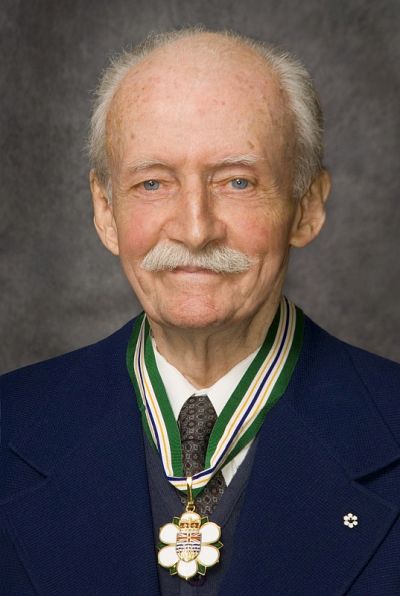
- Year: 2005
- City: Duncan
- Region: Vancouver Island/Coast
- Category: Arts and Culture
George William Hungerford
Mr. George Hungerford’s community leadership in sport, health, education and benevolence has few parallels in British Columbia.
Mr. Hungerford’s dedication to any one of the major initiatives he has undertaken would be considered a huge contribution. That he has taken on several is truly remarkable. He is an Olympic gold medalist in rowing in the 1964 Olympics and has been involved with sport since then, including the Vancouver 2010 Olympic and Paralympic Games.
In the years following Expo 86, Mr. Hungerford played a key role in the Science World fundraising campaign, helping raise $19 million for this important educational initiative.
When cancer touched Mr. Hungerford’s family, he became actively involved in fundraising for the BC Cancer Foundation, serving as co-chair of the Major Gifts Campaign. He helped raise a remarkable $130 million during the Foundation’s Millennium Campaign, which allowed the establishment of the new BC Cancer Research Centre and the Genome Sciences Centre at the BC Cancer Agency.
Mr. Hungerford brought the same level of commitment to his work on behalf of the Pacific salmon conservation. For 20 years, he served as the founding Chair of the Pacific Salmon Foundation, which has funded more than $25 million in projects. He continues as a founding board member.
For more than 30 years, Mr. Hungerford has provided outstanding, strategic and thoughtful community leadership to the Salvation Army, helping raise more than $16 million for the work of the organization. Mr. Hungerford has a long association with both University of British Columbia and Simon Fraser University and has been recognized by both universities for his continuing support.
Mr. Hungerford has also chaired and helped raise funds for a world-class rowing facility in Richmond.
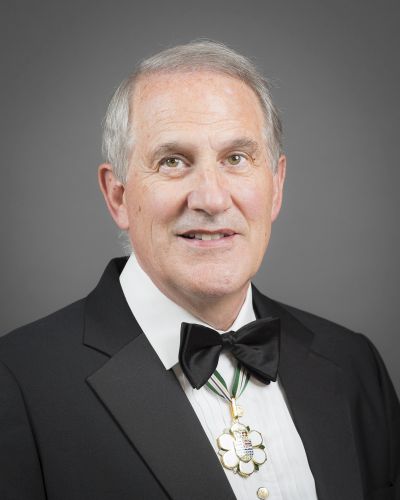
- Year:
- City: Vancouver
- Region: Mainland/Southwest
- Category: Community Leadership
Jane Knott Hungerford
For more than 40 years, Jane Hungerford has focused her volunteer efforts on health care, education, social services and conservation of the environment. She has raised millions of dollars for crucial research and services for the people of British Columbia and beyond.
As chair of the BC Cancer Foundation, Jane Hungerford led a restructuring and then a $130 million fundraising campaign to build the new BC Cancer research centre in Vancouver plus a research component at the Vancouver Island Centre in Victoria. Funds were also allocated for the creation of the Michael Smith Genome Science Centre.
Thanks to her leadership, game-changing research at the BC Cancer Agency has led to targeted therapies for ovarian and lymphoid cancers, a comprehensive BrainCare BC program, advanced clinical tests for acute myeloid leukemia, pancreatic cancer and colo-rectal cancers, and world-first discoveries of the genetic makeup and subtypes of breast cancer.
She has brought the same high standard of leadership to fundraising for other community organizations including the Salvation Army, the Pacific Salmon Foundation and the University of British Columbia where she served as chair of the UBC Alumni Association. She was one of the founders of Science World. In each case where she has become involved with an organization, she has left it reorganized and strengthened in its ability to fundraise and deliver important services more effectively.
Ms. Hungerford’s many awards include the Queen Elizabeth Golden Jubilee and Diamond Jubilee medals.
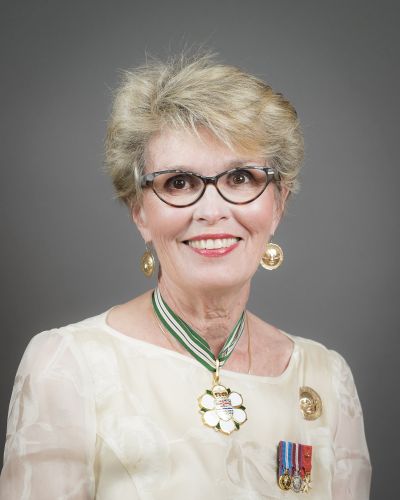
- Year: 2014
- City: Vancouver
- Region: Mainland/Southwest
- Category: Community Leadership
Richard Hunt
Richard Hunt was born in 1951 at Alert Bay, British Columbia, into a family of internationally respected artists, including his father Henry and his grandfather Mungo Martin. Richard Hunt began carving with his father at the age of 13.
In 1973, he began work at the British Columbia Provincial Museum in Victoria as an apprentice carver under his father. The following year he assumed the duties of chief carver in the Thunderbird Park carving program. He remained at the museum in that capacity for 12 years. In December 1986, Mr. Hunt resigned this position and began a new career as a freelance artist.
Richard Hunt has played a leading role in the renaissance of Northwest Indian art. It is a rebirth that has spread throughout North America and influenced indigenous art around the world. A master carver, experienced ritualist and dancer, Richard Hunt has created a diverse body of art that contributes much to the preservation and perpetuation of Kwa-gulth culture and traditions. His totems, prints, drums, masks and bowls are the pride of museums and private collections around the world. He has also communicated his art and culture, in talks to students, from preschool to university level, and museum visitors who watched over the years as he worked.
Outside Canada, Richard Hunt has been an effective ambassador for native people, for British Columbia and Canada. Richard Hunt’s Indian name – ‘Gwe-la-yo-gwe-la-gya-les’ – means ‘a man that travels around the world giving’. Through his art, Richard Hunt has indeed given much.
He is a man possessed of enormous reserves of energy and has dedicated his creative talents towards furthering the cultural ambitions of the Kwa-gulth people.

- Year: 1991
- City: Victoria
- Region: Vancouver Island/Coast
- Category: Arts and Culture
Chief Tony Hunt (Nakapnkim) *
Chief Tony Hunt was hereditary chief of the KwaGulth people and was one of the greatest native artists of the Pacific Northwest. He was fluent in his native Kwak’wala language, which was taught to him by his grandfather, legendary artist Chief Mungo Martin.
Chief Hunt created Thunderbird Park with his father, Chief Henry Hunt, and his grandfather. Chief Tony Hunt also designed the Hunt Family Big House in the Royal B.C. Museum, which is a showpiece for the world and a place of pride for his people.
His grand masterpiece is the KwaGulth ceremonial Big House at Fort Rupert – the largest traditional native structure ever built in the Pacific Northwest.
Chief Hunt has designed nearly 100 full-scale totem poles – more than any First Nation artist. Many of his works are celebrated monuments in countries around the world. Victoria’s sister cities Morioka, Japan and Souchow, China, both have poles carved by him as gifts from the people of Victoria. He also has works of art in international museums and in the Canadian Embassy in Mexico City and the former Canadian Embassy in Bonn.
Among the many honours awarded to Chief Hunt outside his traditional culture are an Honorary Doctorate of Law from Royal Roads University and Citation of Merit from the Royal Canadian Academy of Arts.
Chief Hunt was presented to Her Majesty, Queen Elizabeth II and gave her three works of art.
Most recently Chief Hunt worked with The Honourable Steven L. Point, OBC, Lieutenant Governor of British Columbia, on two canoe projects. The first was the river going canoe “Shxwtitosel”, which was given by His Honour to the Province of B.C. The second canoe, “the Salish Seas”, was given by His Honour to the Canadian Navy.
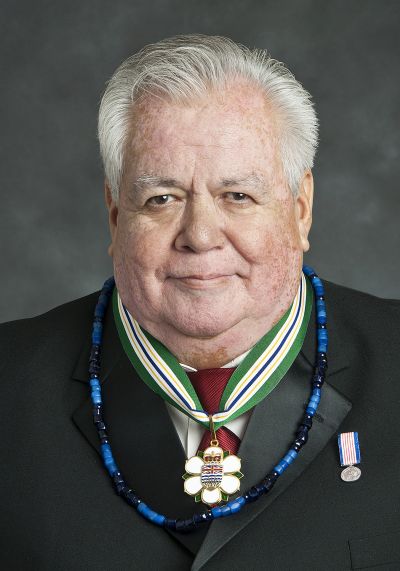
- Year: 2010
- City: Victoria
- Region: Vancouver Island/Coast
- Category: Arts and Culture
Vicky Husband
Vicky Husband is a passionate defender of British Columbia’s natural heritage, especially the coastal rainforest and its inhabitants.
Through her volunteer effort over the past 20 years, she has become for many the outspoken voice of environmental reason — speaking straight to the point with courage and determination, fueled both the science and by personal knowledge of the salmon, trees, bears, people and places of our province.
In the decade-long campaigns to protect Gwaii Haanas/South Moresby, the Khutzeymateen Grizzly Bear Sanctuary, the Carmanah Valley and Clayoquot Sound. Vicky has worked along side of others, and irreplaceable source of inspiration and support for her colleagues, a tireless champion for biodiversity and natural places in the halls of government, school gymnasiums and the daily news.
She can also go it alone if need be, and the Tahsish, Kwois and Silburn, the Nasparti, the Power and the Battle watersheds on the northwest coast of Vancouver Island are protected today largely because Vicky Husband made them her personal campaigns.
She blends equal measures of respect for scientific knowledge and the understanding of First Nations, and pioneered the use of satellite imagery for helping others see for themselves how much ancient rainforest has been logged and how little remains.
Vicky Husband is a leader in this generation’s commitment and responsibility to ensure a natural legacy for those to come.
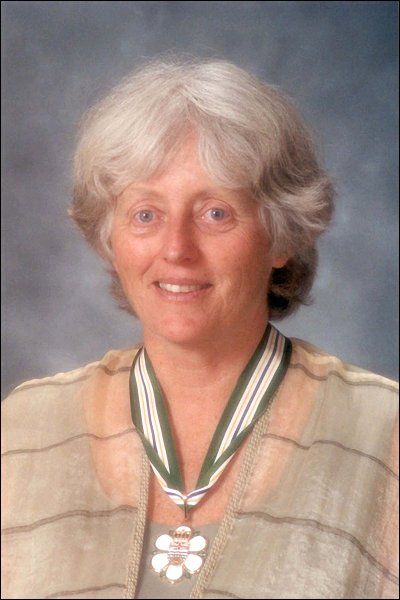
- Year: 2000
- City: Victoria
- Region: Vancouver Island/Coast
- Category: Environmental
* Denotes deceased. The Honours and Awards Secretariat relies on family members to notify us if members have passed.
